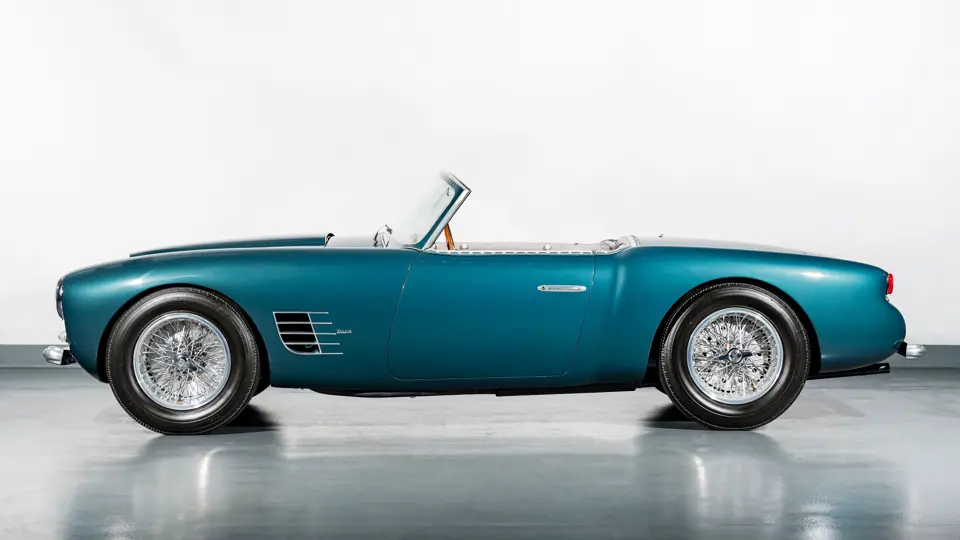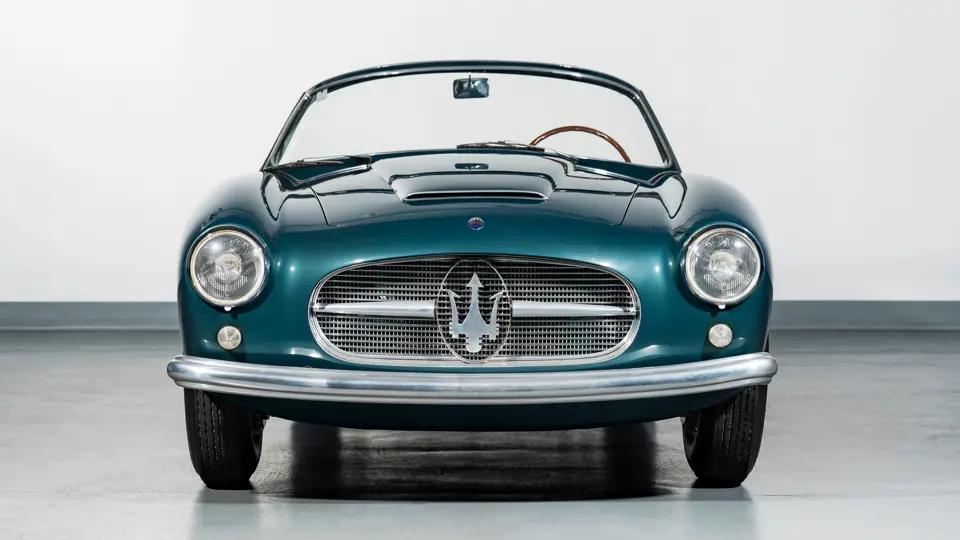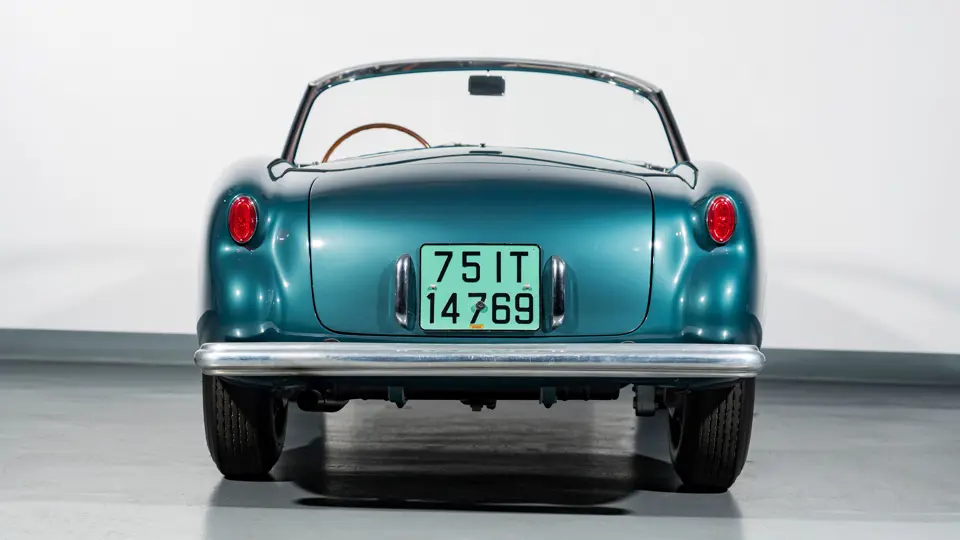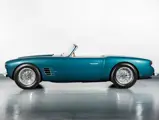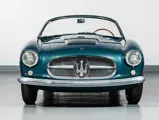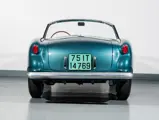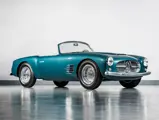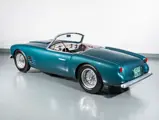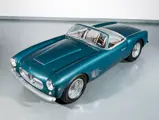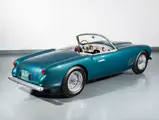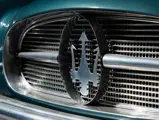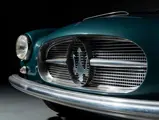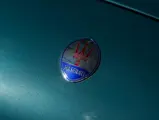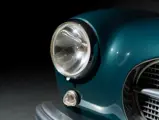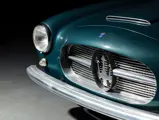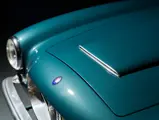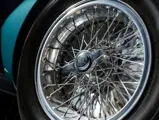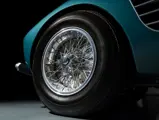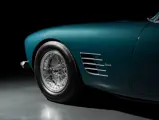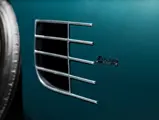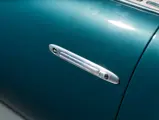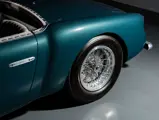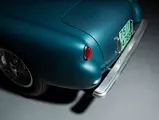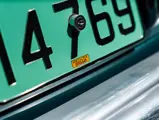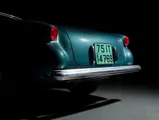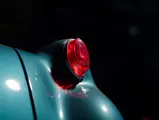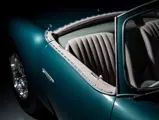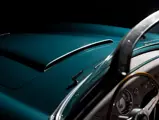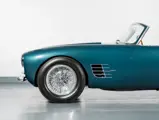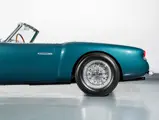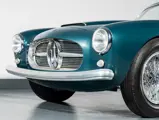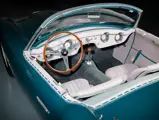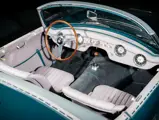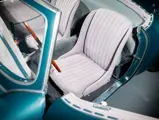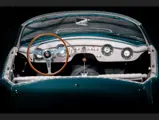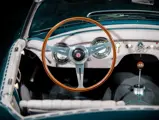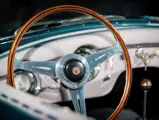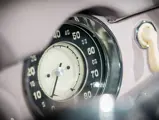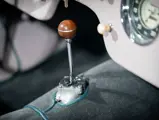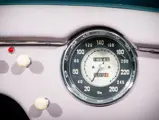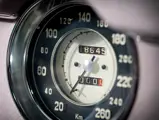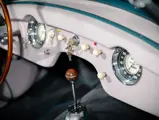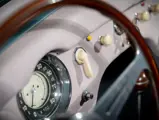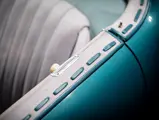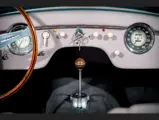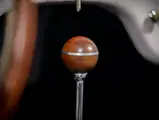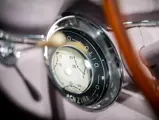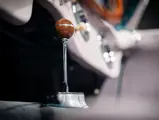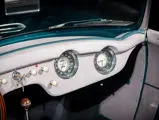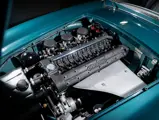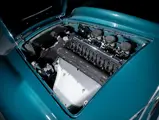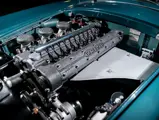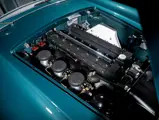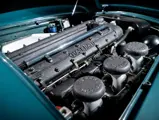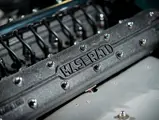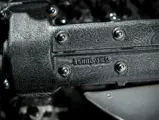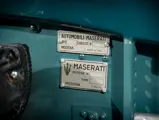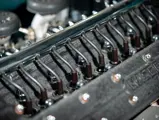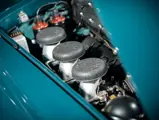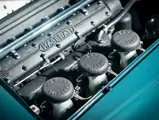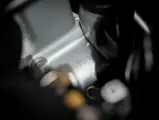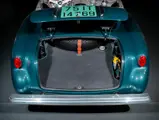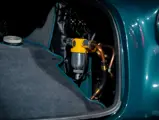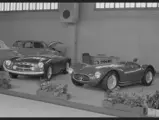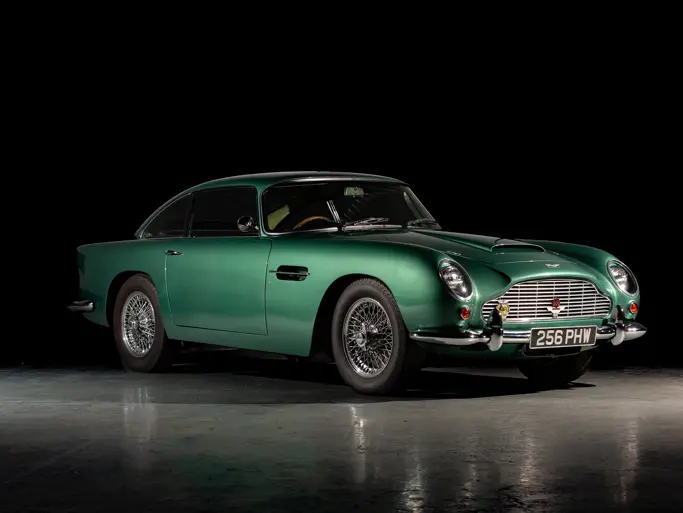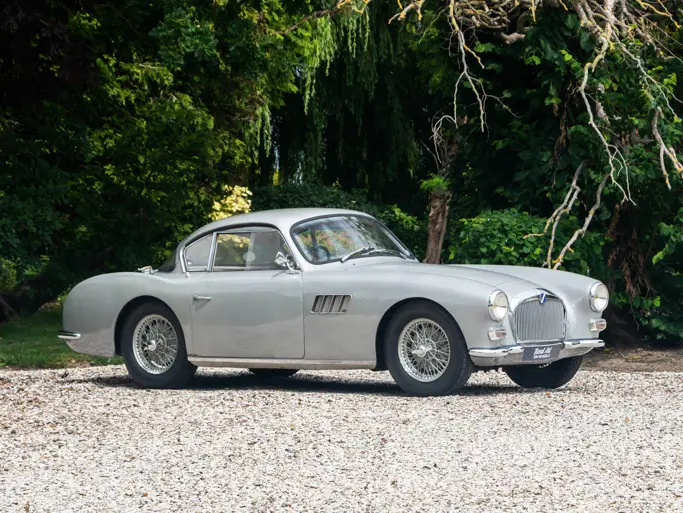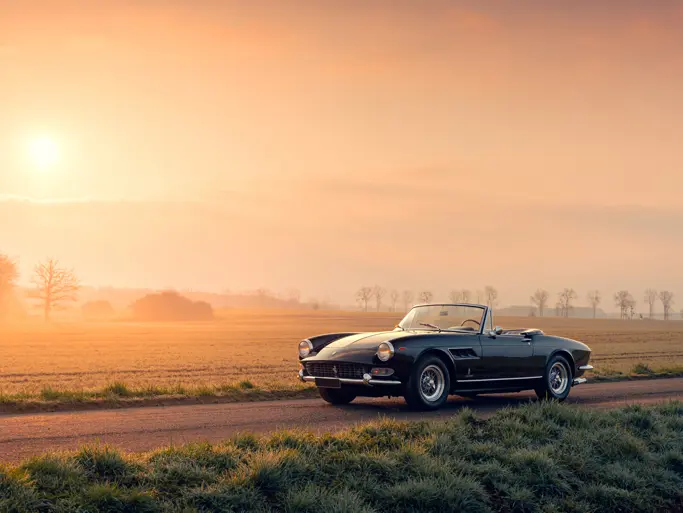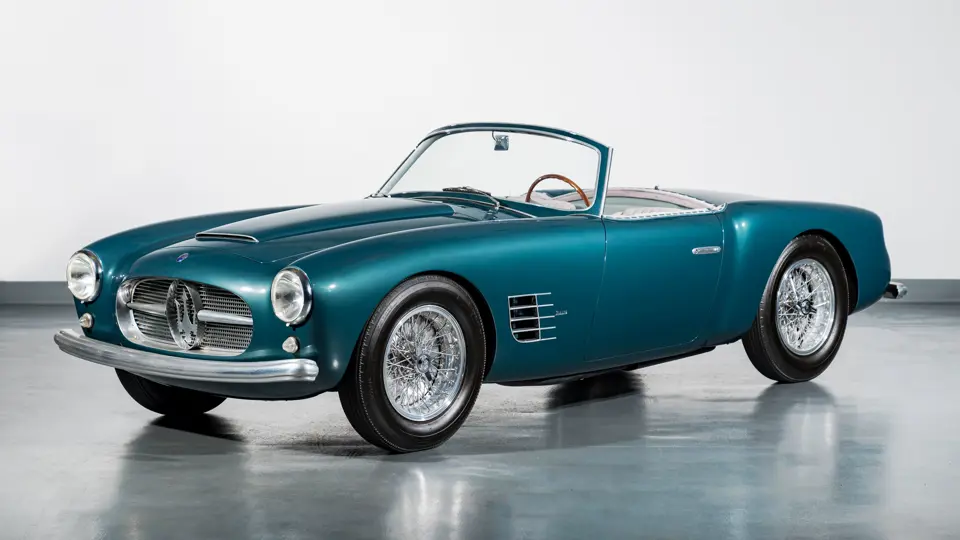
1955 Maserati A6G/54 2000 Spyder Zagato
{{lr.item.text}}
Sold
Offered from the Oscar Davis Collection
{{bidding.lot.reserveStatusFormatted}}
- One of 21 total Zagato-bodied A6G/54 chassis, and the sole example completed by Zagato as a spyder
- Exhibited at the 1955 Geneva Salon and the 1958 Paris Salon
- Modified in period to coachwork specifications by Juan Perón; sports unique build features and interior treatment
- Benefits from a comprehensive restoration completed in 2003
- Displayed at the Pebble Beach Concours d’Elegance, the Villa d’Este Concorso d’Eleganza, and the St. James Concours d’Elegance, Amelia Island, and the Concours d'Elegance of America
- Best of show winner at the 2005 Concorso Italiano and class winner at the 2004 Quail, A Motorsports Gathering
Of the handful of noted Italian carrozzerie that designed and built coachwork for history’s most powerful and exclusive sporting automobiles, perhaps none is as celebrated for the beauty of its designs as Zagato. Ugo Zagato’s Milan-based firm cut its teeth in the pre-war era, particularly coming to recognition for the coachwork it produced for Alfa Romeo’s highly successful racing spiders built on the 6C 1750 and 2300 platforms.
Zagato’s penchant for clothing competition-developed chassis in voluptuous, aerodynamically flowing bodywork continued in the post-war period, as Ugo’s son Elio Zagato took the helm with a clear interest in motorsports. During the 1950s and early 1960s, Zagato clothed some of the era’s most celebrated European sports-racers, and was responsible for delectable designs that graced limited-production variants of the Alfa Romeo 1900C SS, the Fiat Otto Vu, and the Aston Martin DB4 GT, among others.
ZAGATO AND MASERATI
Typical of the firm’s greatest designs was the short run of A6G/54 chassis it bodied for Maserati. In 1950, Modena had introduced a 2-liter version of its A6G-based sports-racing model, featuring a twin-cam single-plug ignition variant of the long-running inline-six engine. In 1954, twin-plug ignition was added to complement an advanced chassis with large-finned aluminum drum brakes. This final iteration of the Maserati A6 road car was internally dubbed the A6G/54.
Of the approximately 60 examples of the new model that were built through 1957, 21 chassis were dispatched to Zagato for the carrozzeria’s characteristically striking interpretation. Twenty of these cars were completed as racing berlinettas that were built in four series, though they featured such varying details that no two were exactly alike. These Maseratis became legendary in Italian racing circles, winning the Under 2-Liter GT class in the Italian Sports Car Championship in 1956 and 1959.
However, the very first A6G/54 chassis to be bodied by Zagato was not completed as a racing berlinetta. Chassis number 2101, the featured lot, was built instead as a luxuriously trimmed spyder, and it was presented at the 1955 Geneva Salon posed next to a spartan A6GCS racer. According to research by marque expert Walter Bäumer that is supported by factory paperwork on file, this chassis was dispatched to Zagato for coachwork in early November 1954 and completed two weeks later.
This A6G/54’s original exterior design was somewhat different than as configured today. The Geneva show car was finished in Grigio Piombo (lead grey), and it was equipped with a standard flat hood, unadorned fenders, and a front end characterized by a huge, unconventional chrome trident that stretched across most of the grille, complemented by two inset foglamps. Despite being completed as a roofless spyder, the car featured an ornate interior with suede upholstery throughout that unusually extended to the top edges of the doors.
While being shown at the Geneva Salon the Maserati caught the eye of Juan Perón, the polarizing Argentine strongman who was known for being an unabashed sports car enthusiast. Peron offered to buy the spyder, but he requested a few cosmetic changes, so 2101 was returned to Zagato for coachwork modifications. The original grille was changed with the removal of the foglamps and an exchange of the outsized trident for a more standardized version of the Maserati logo. A prominent hood scoop was added, as were straked fender vents; the windshield was changed, and the exterior was refinished in Blu Algisto Scuro (Cold Dark Blue), a beautiful shade of blue-grey.
A RETURN TO THE SALON STAND
By the time the A6G/54 was completed to Perón's specifications, however, the Argentine president was enduring the throes of a popular revolt, and the order was cancelled. The Maserati was then stored at the factory for several years before it was exhibited again at the 1958 Paris Salon, this time by the French marque importer Thepenier. Once again, the car caught the attention of a world-class diplomat, this time an American embassy staffer named Louis W. Schroeder. Schroeder purchased the A6G/54 and took delivery in April 1959, and he drove the car to La Sarthe to watch the 1959 24 Hours of Le Mans, where he was undoubtedly delighted by fellow countryman Carroll Shelby’s victory with the Aston Martin team.
In April 1960 Schroeder sold the Maserati to Lieutenant-Colonel Sherod Santos, who was serving with the U.S. Air Force at the Chateauroux Air Station in France. He commissioned the factory to rebuild the engine in August 1962, although he was dissatisfied with the result and engaged further work from a French specialist. Still experiencing problems with the car upon his return to the United States, Santos ordered new exhaust valves and a head gasket from the factory, as revealed by correspondence on file.
In 1966 Colonel Santos sold the A6G, and it passed into unknown ownership before being acquired in 1968 by Carmel, California, resident George Sackman, who retained possession for 12 years. Repainted red, the spyder was sold in 1980 to Angelo Ferro of San Rafael, California, and after very little use he put the car into storage, where it remained for roughly 20 years. In 2001 Mr. Ferro recommissioned the Maserati, entrusting Genoa Racing in San Francisco to perform a comprehensive restoration to the 1958 configuration (per the Perón modifications) that was completed in 2003. This work included an engine rebuild by Ferrari specialist Paul Hasselgren, and a repaint in Blu Algisto Scuro by Rob Etcheverry.
A UNIQUE SHOWSTOPPER, NOW AS THEN
Following its restoration, this distinctive Maserati was presented at the 2003 Pebble Beach Concours d’Elegance. It won a class award at the 2004 Quail, A Motorsports Gathering, and best of show a year later at Concorso Italiano. Acquired in the early 2010s by a respected collector based in the United Kingdom, the Maserati continued to be exhibited at some of the world’s most exclusive gatherings, including the 2013 Villa d’Este Concorso d’Eleganza and the St. James Concours d’Elegance.
Sold to Oscar Davis in late 2013, the Maserati has since been maintained as needed by Leydon Restorations, including the installation of the correct Autoflux fuel pump, a rebuild of the carburetors, and attention to the brakes and fuel system.
Incredibly rare and desirably maintained, this one-off Zagato-built spyder should command the attention of enthusiasts of Maserati’s celebrated Italian Sports Car Championship-winning A6G/54 model, or any collector of important Zagato-bodied sports-racers. It is desirably documented with factory build records, period photographs, former owner’s correspondence, prior registrations, and an entry in Walter Bäumer’s well-researched book Maserati A6G 2000 Zagato. Ideal for further display at the world’s most exclusive concours d’elegance, and eligible for touring events of nearly any stripe, this exquisite slice of la dolce vita would make a splendid addition to any sporting collection.

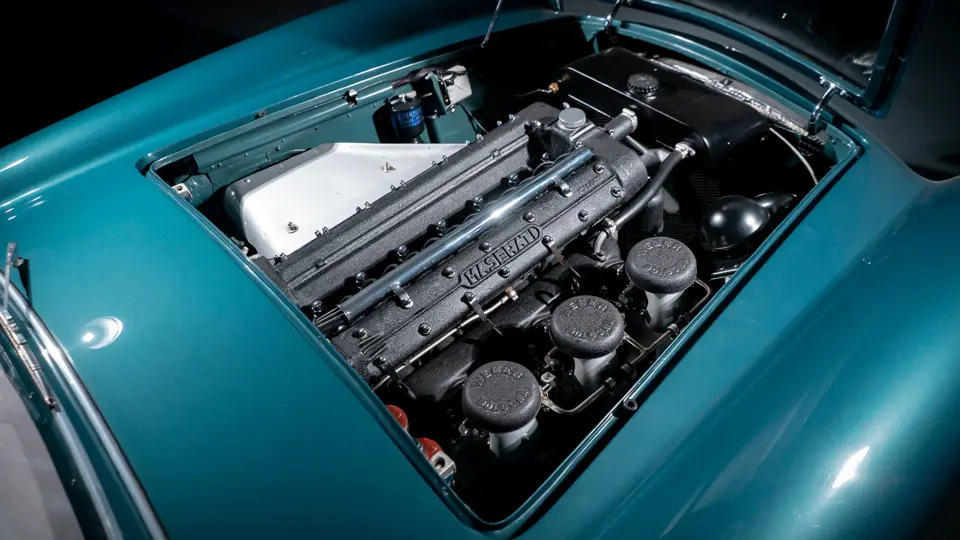


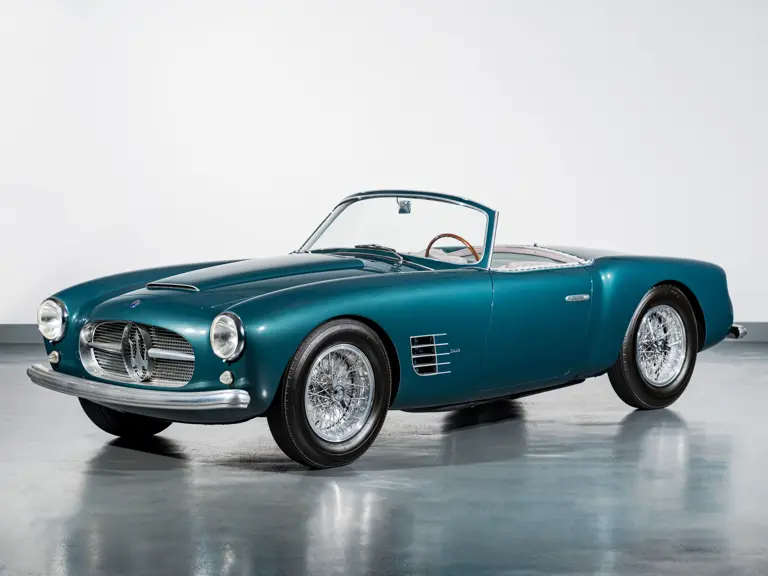
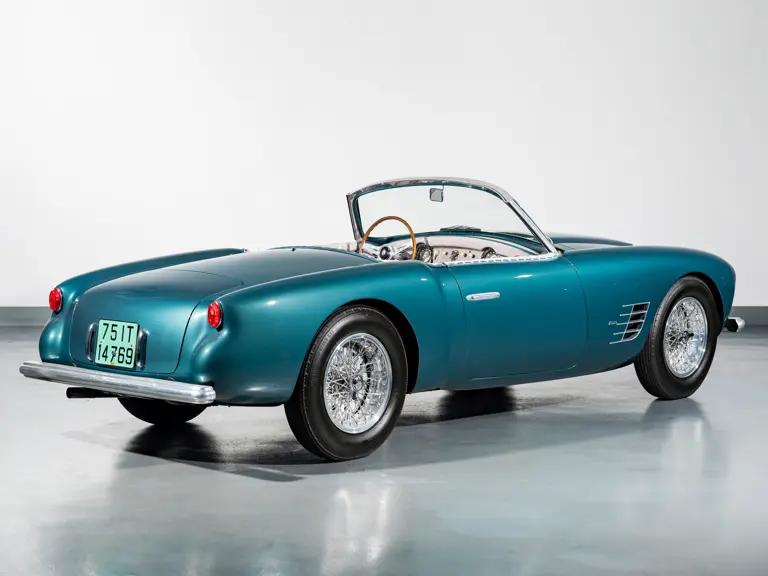
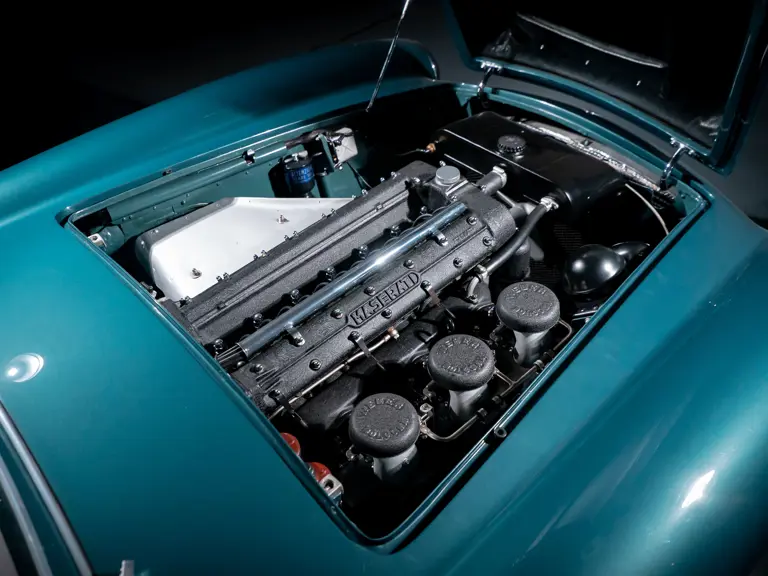
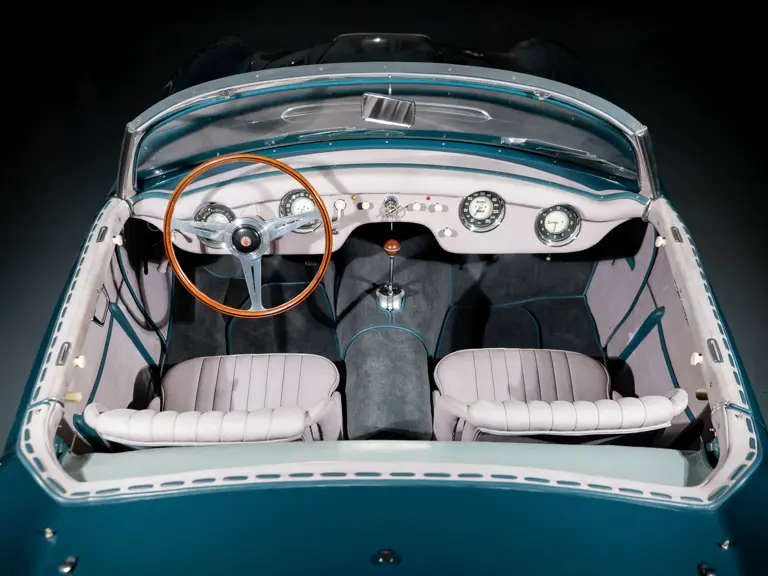
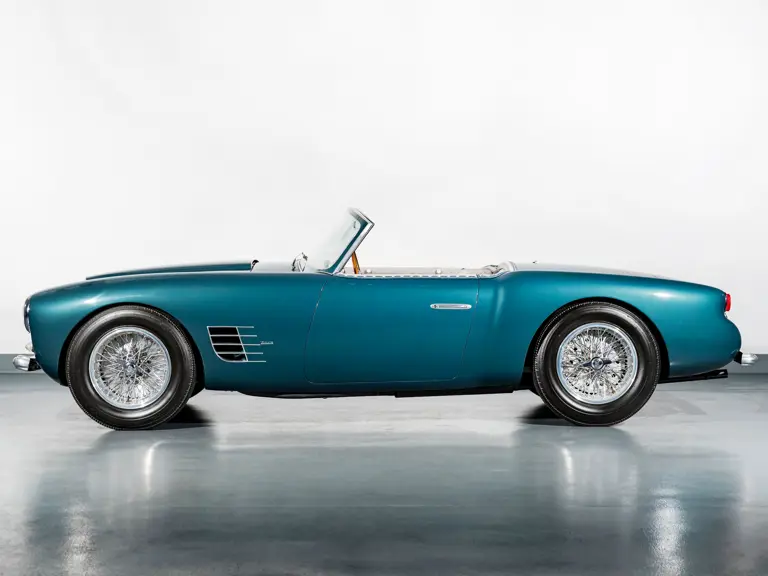
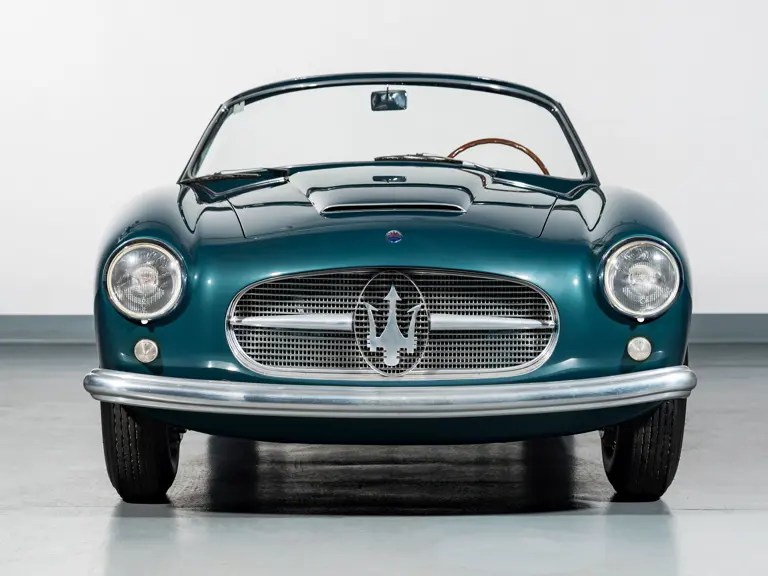
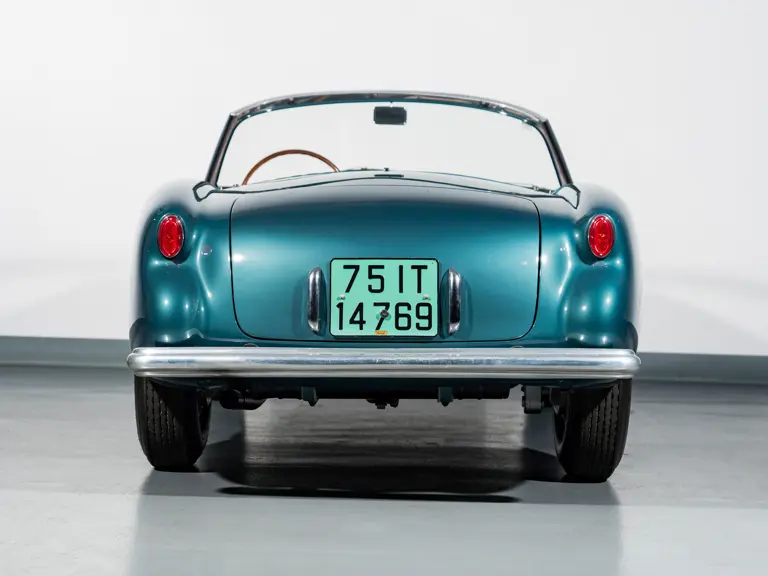
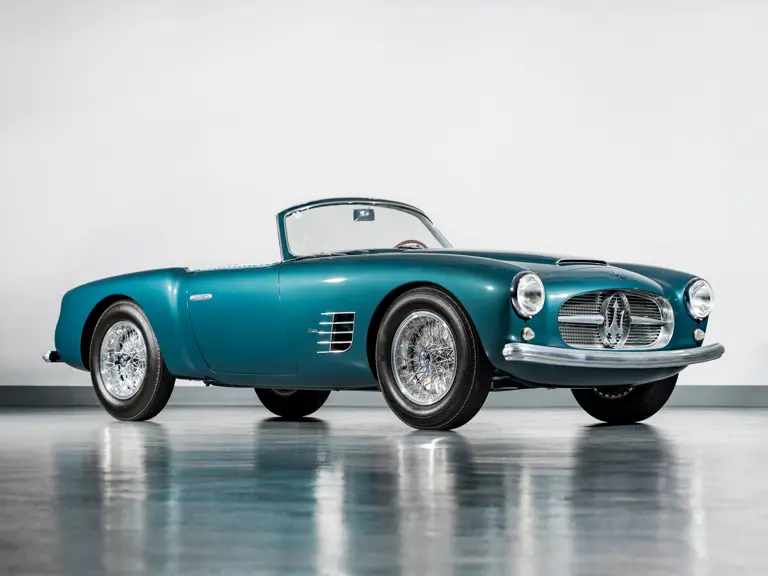
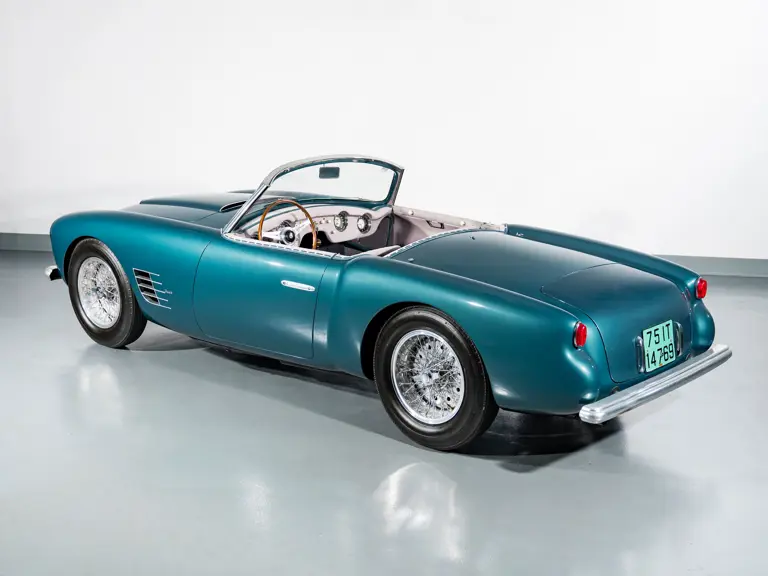
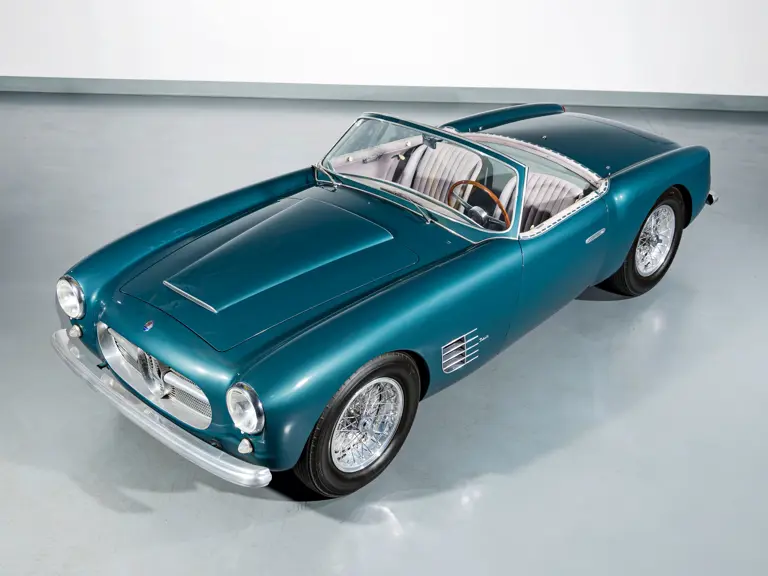
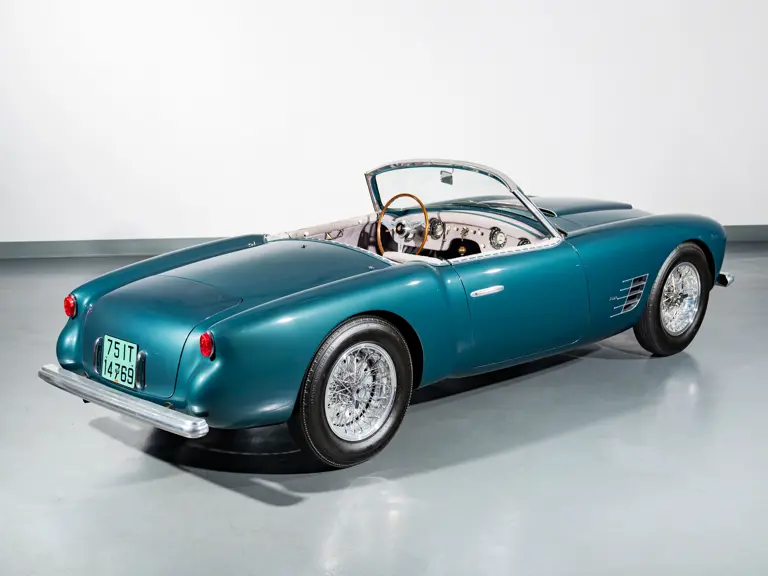
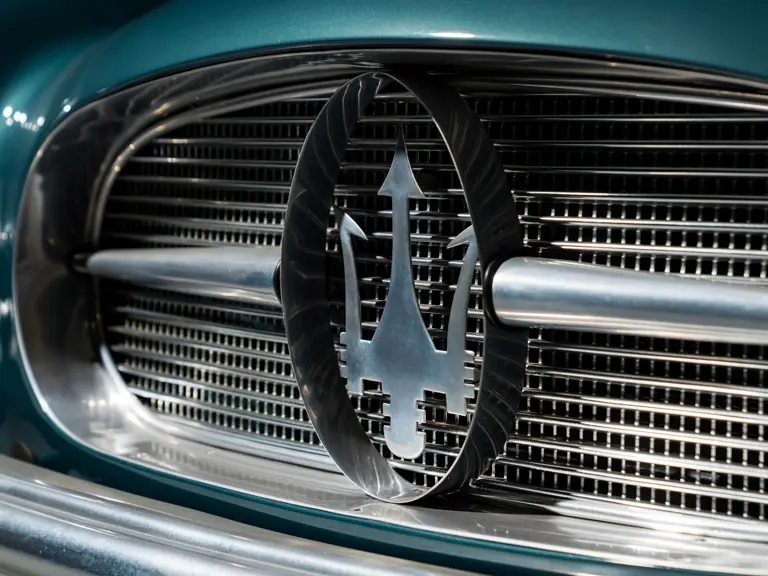
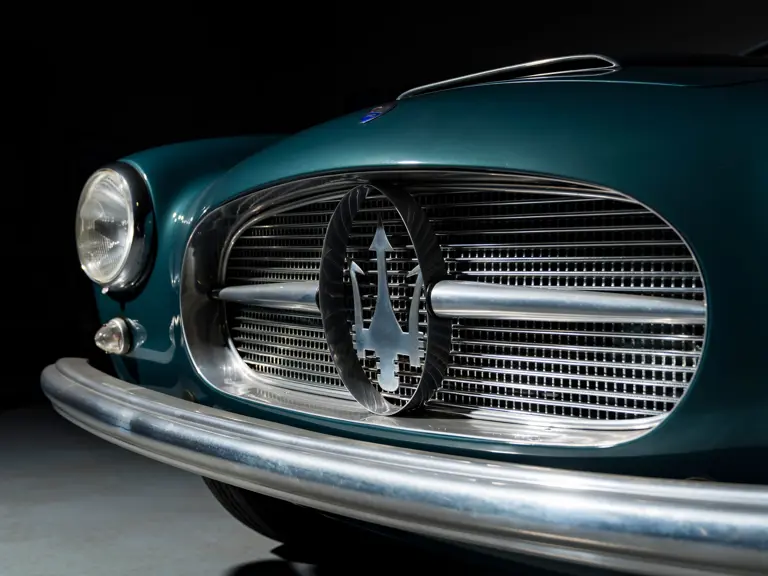
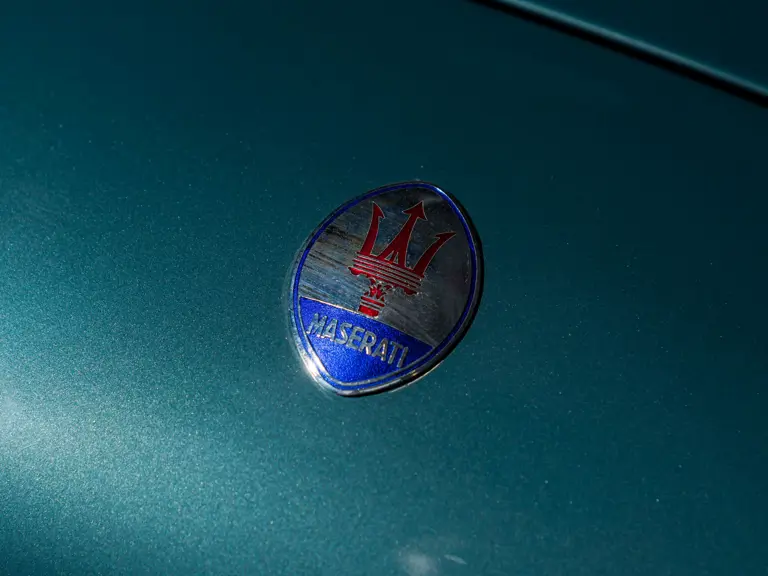
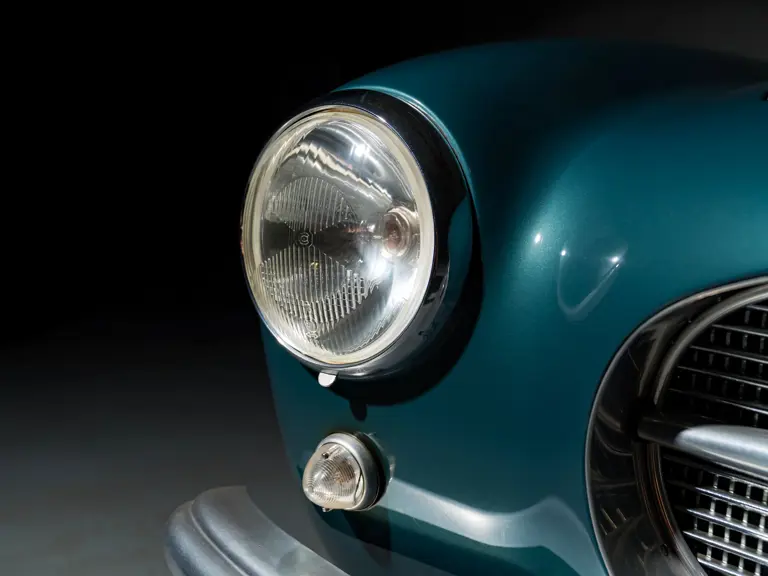
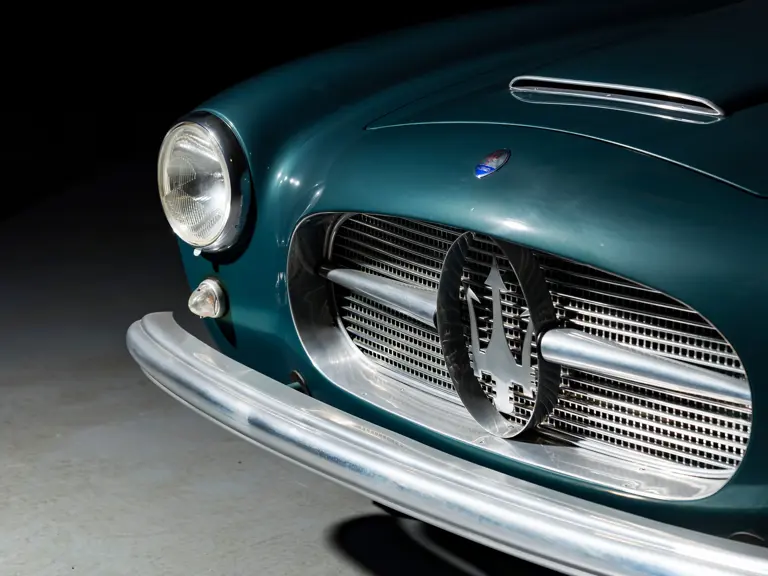
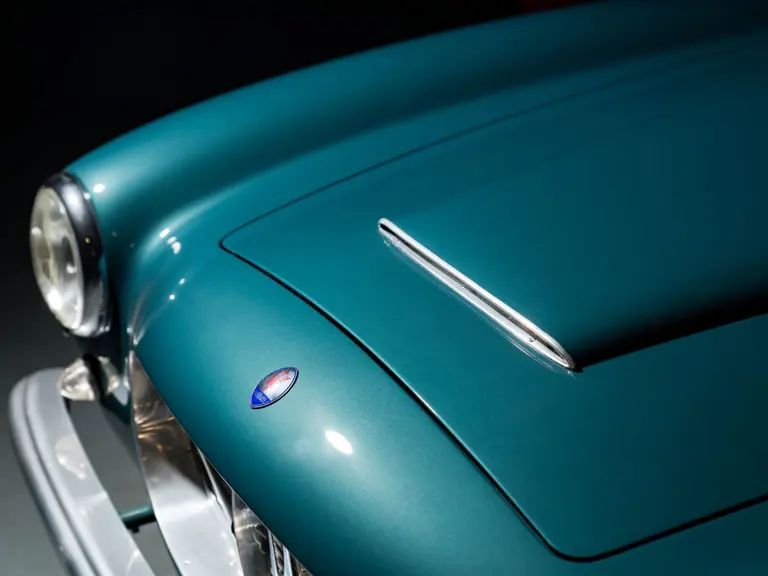
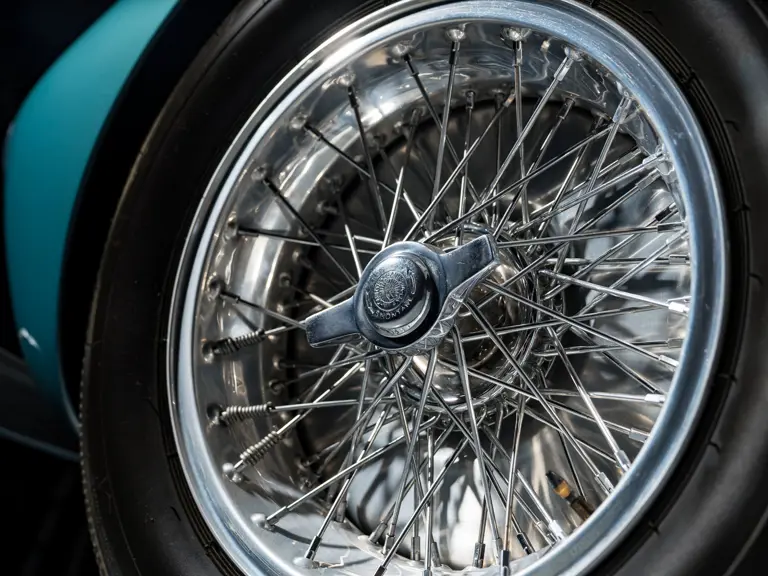
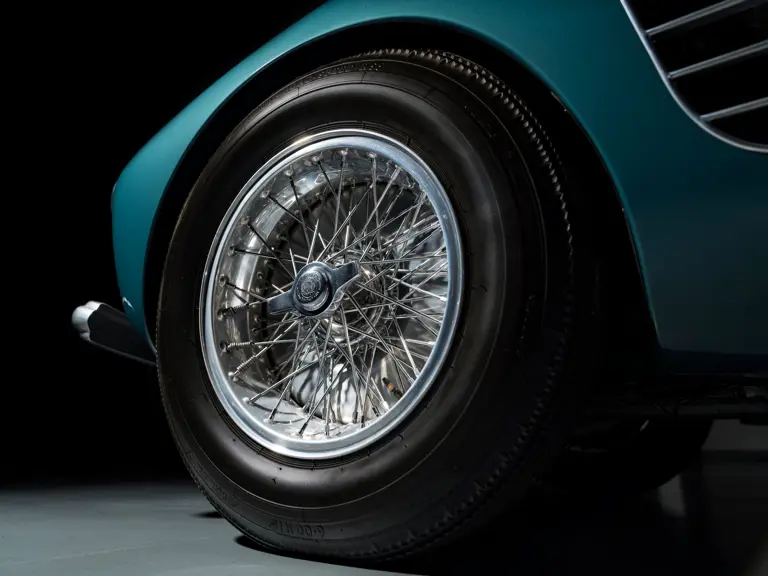
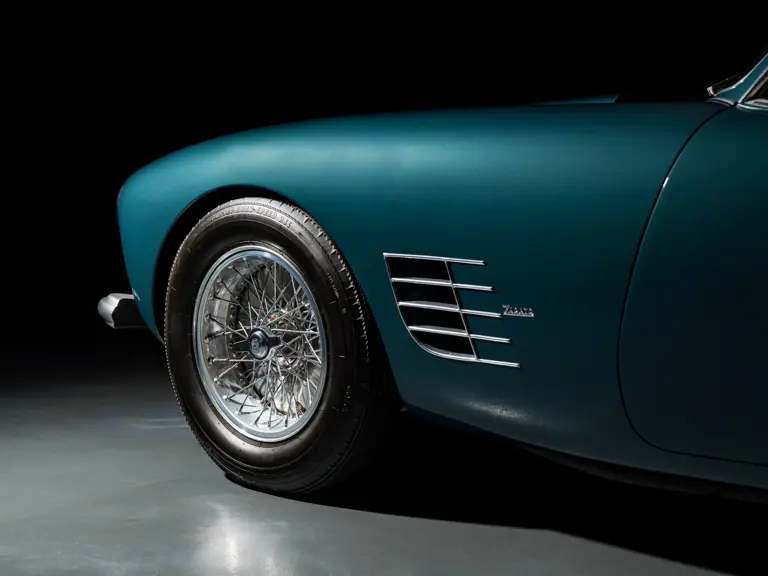
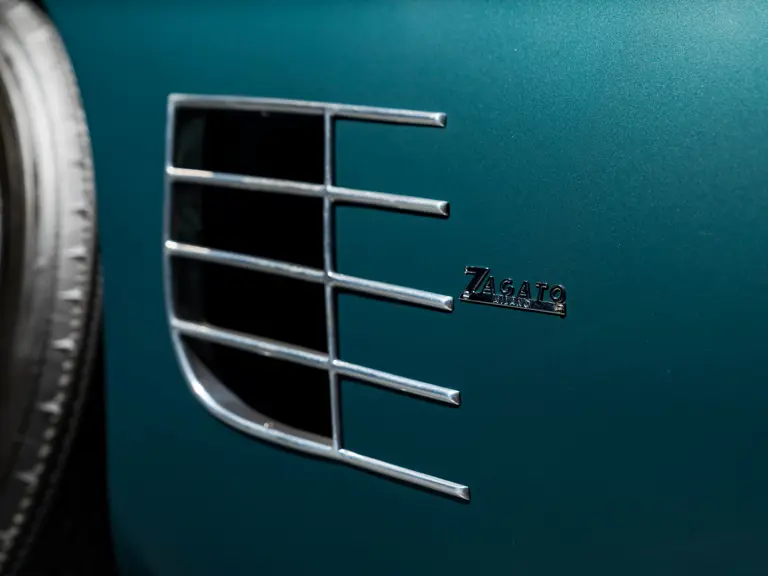
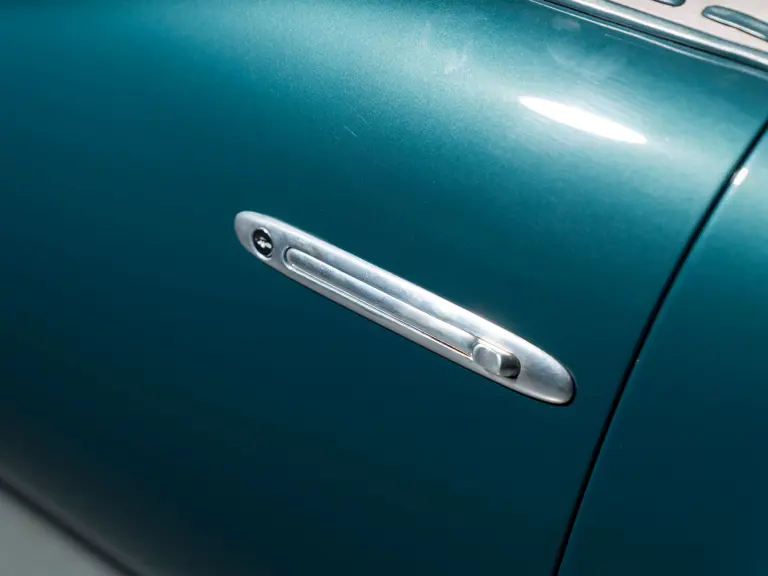
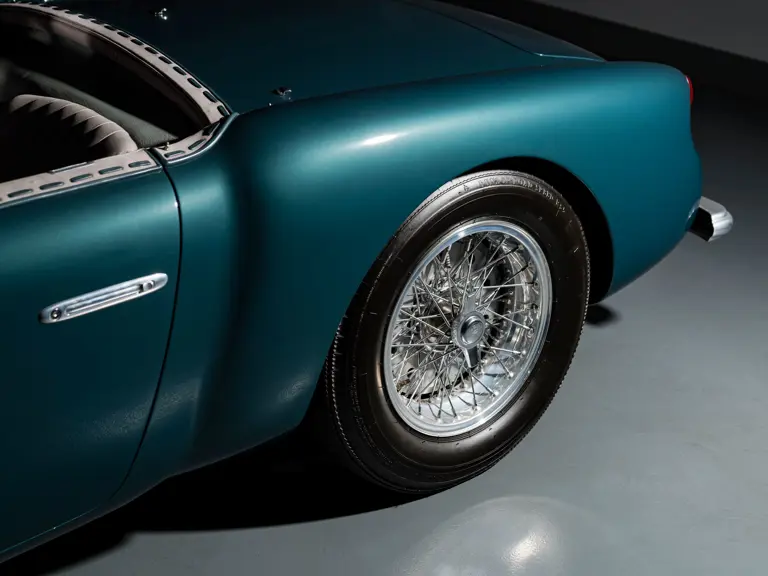
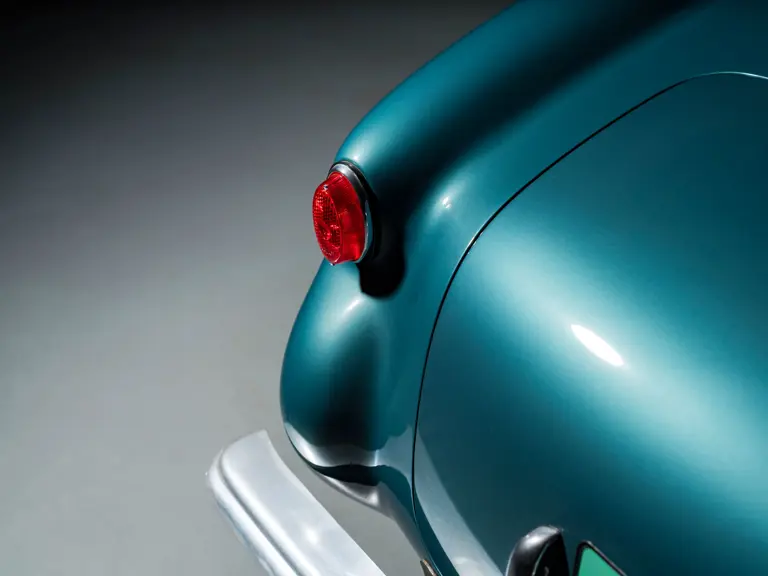
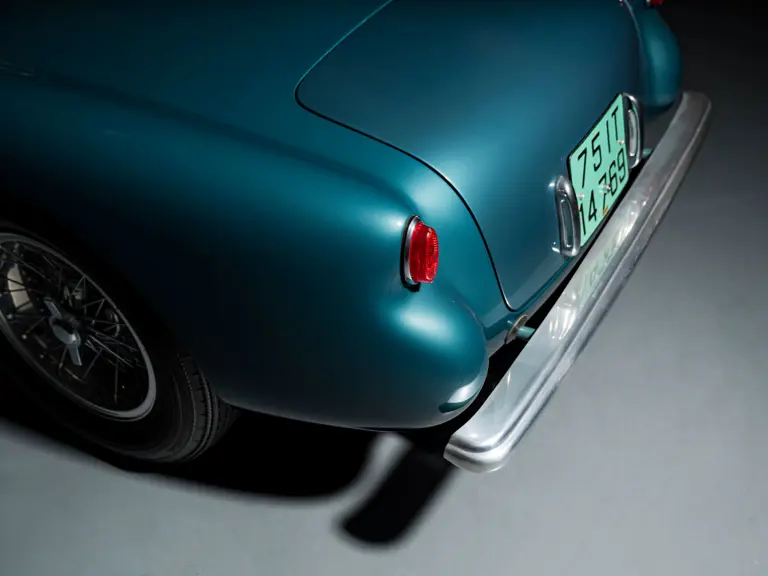
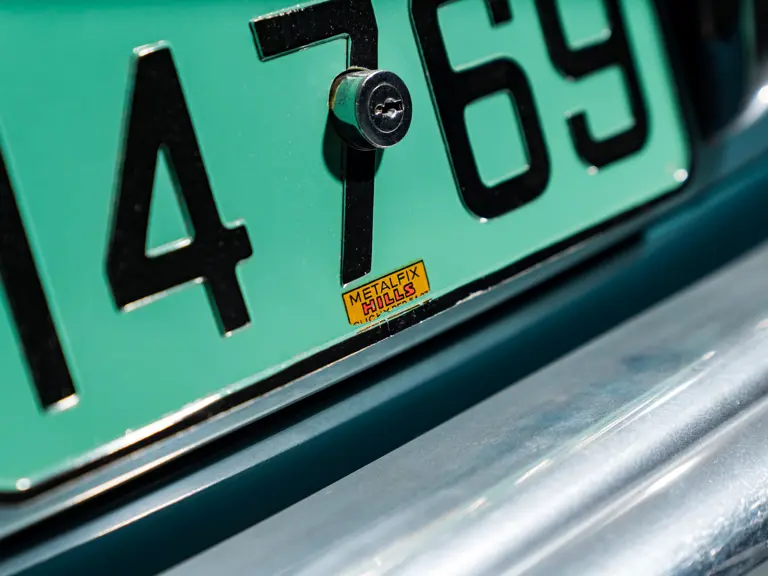
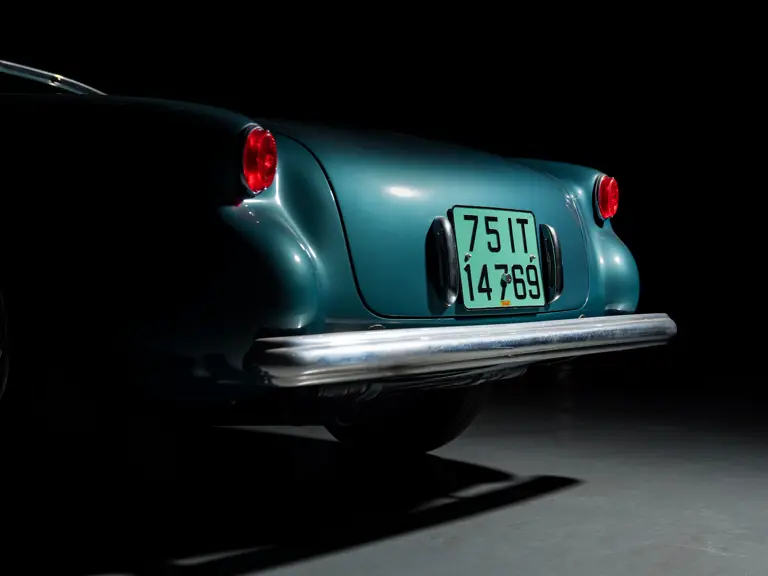
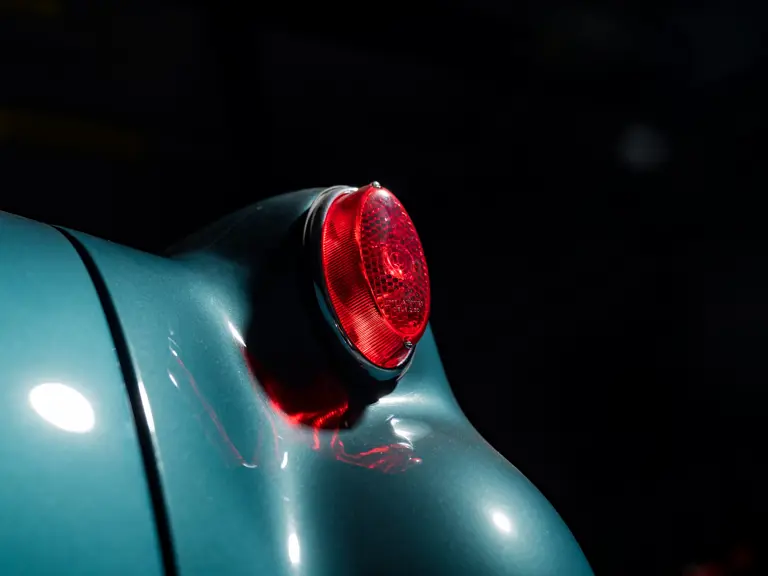
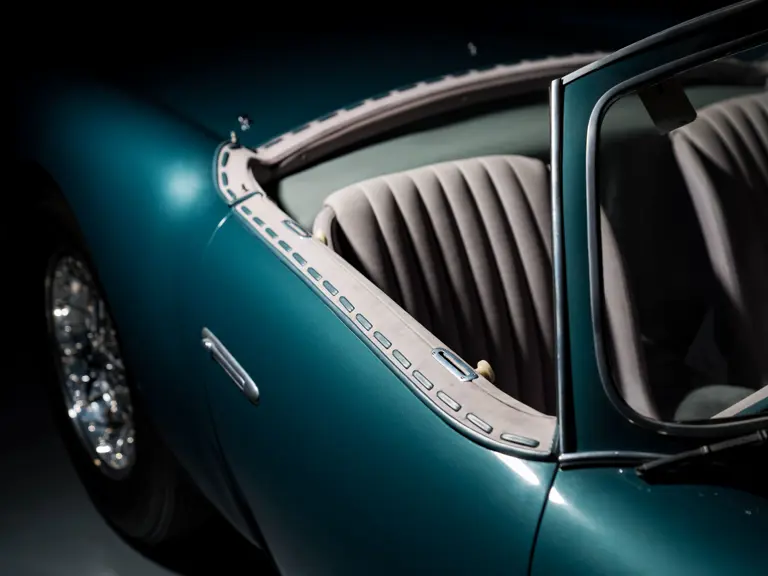
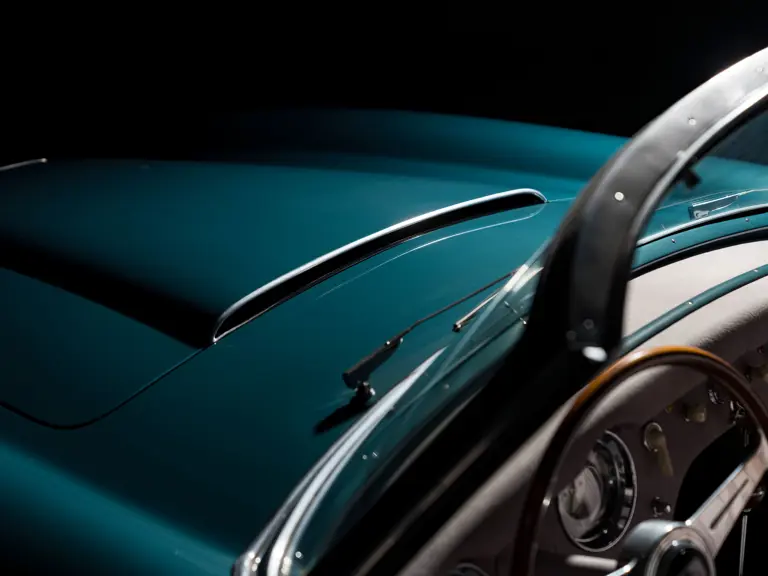
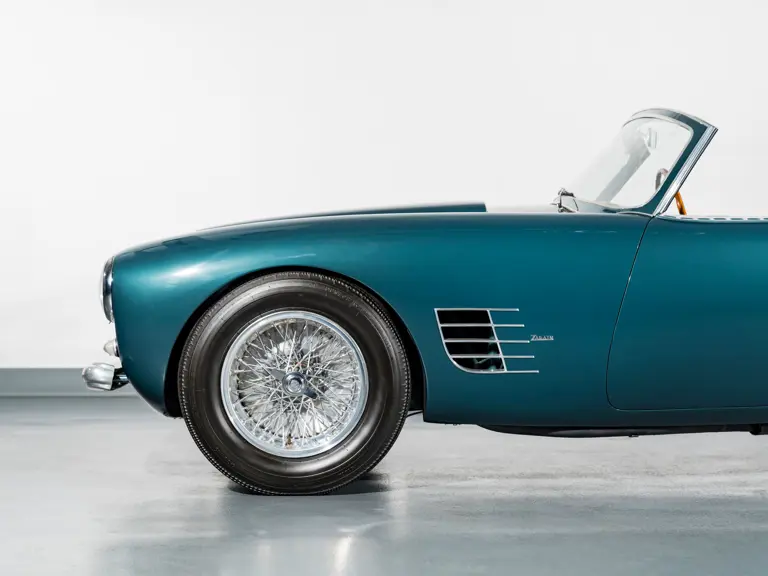
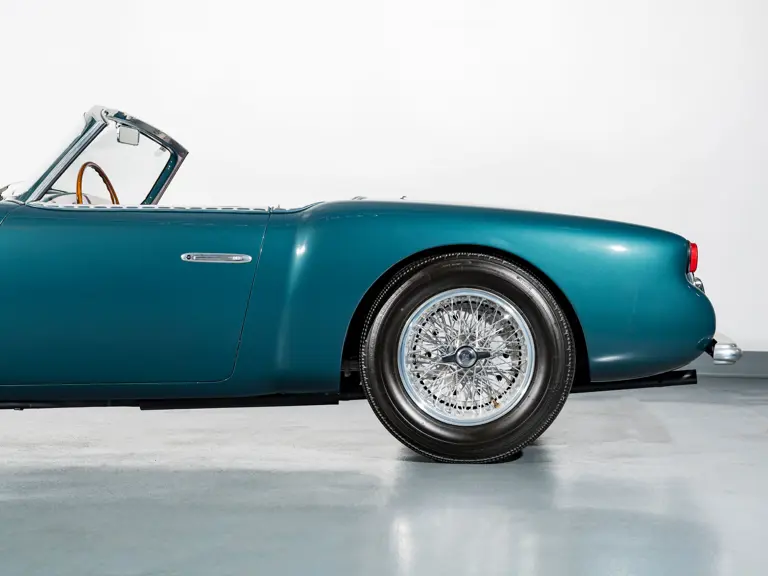
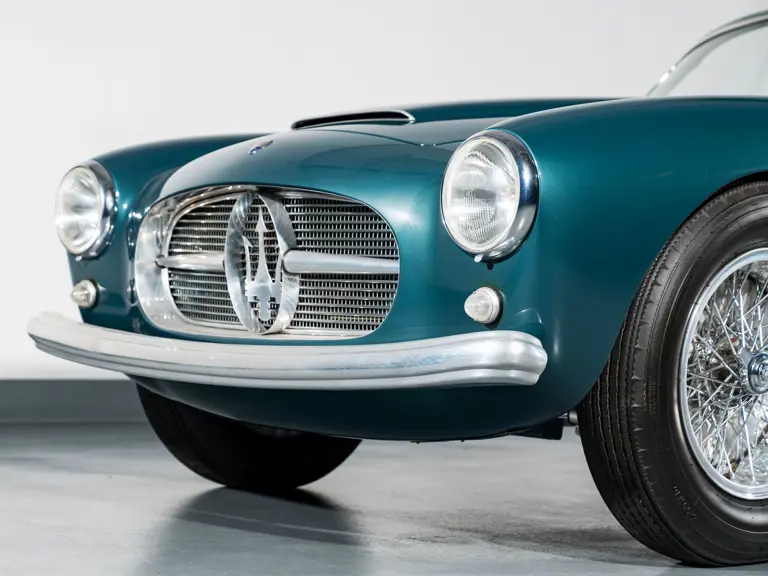
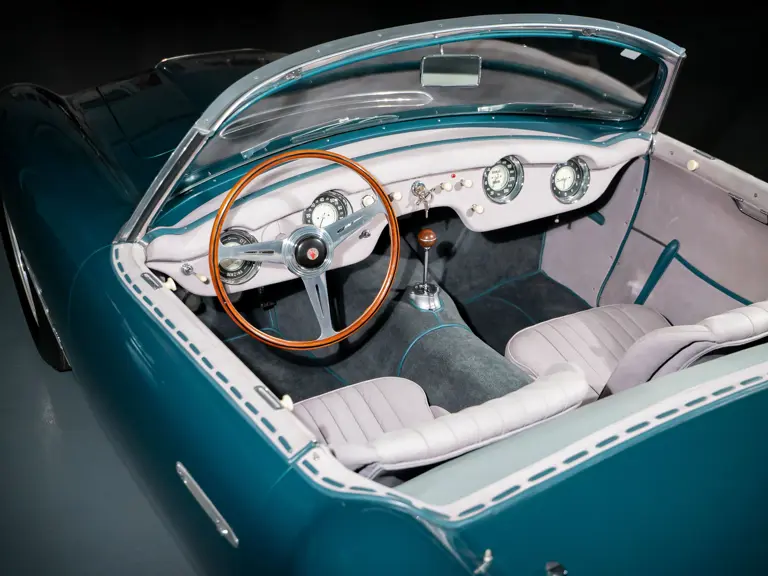
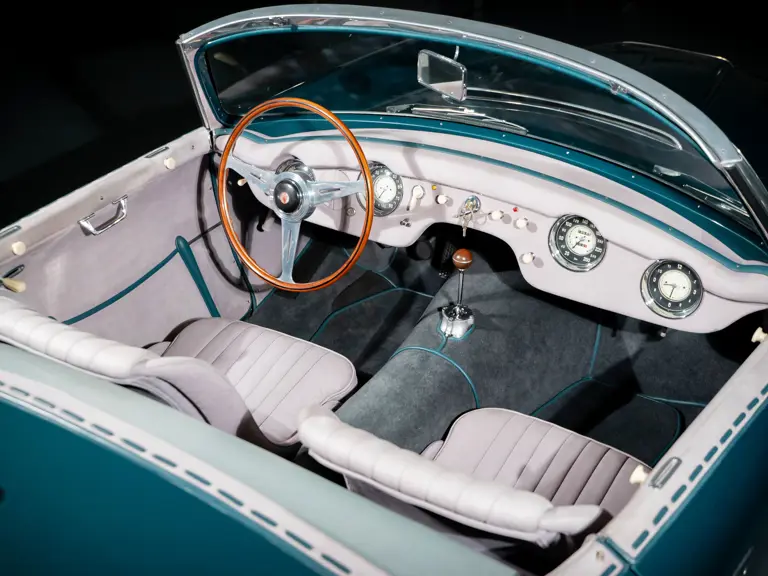
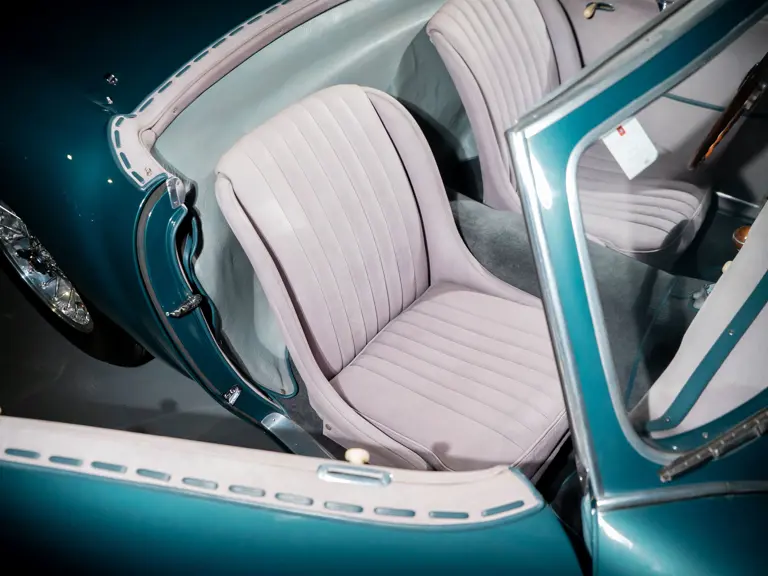
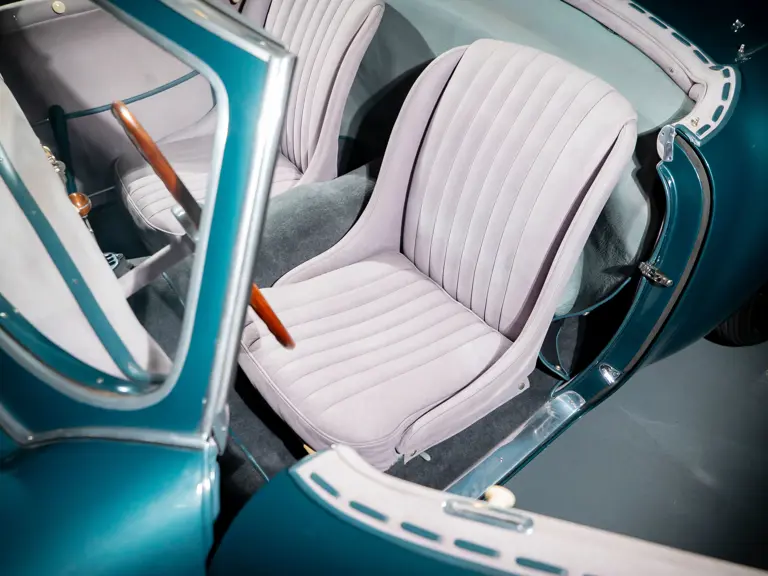
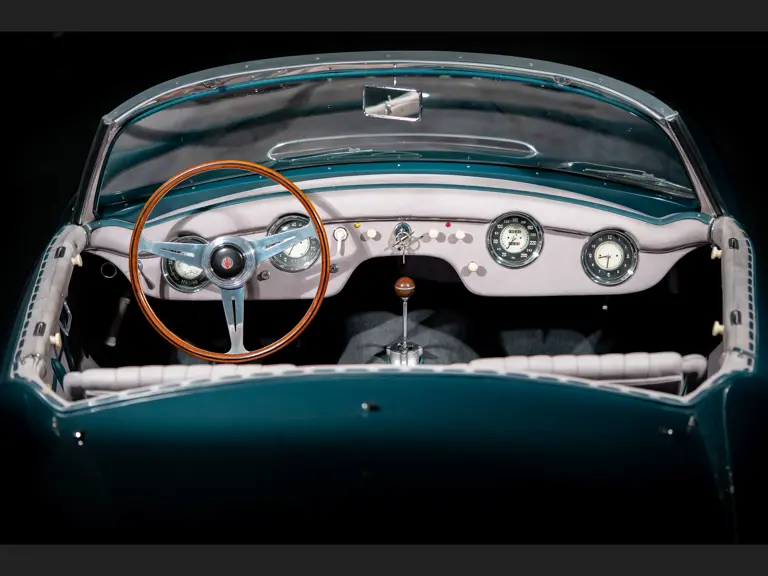
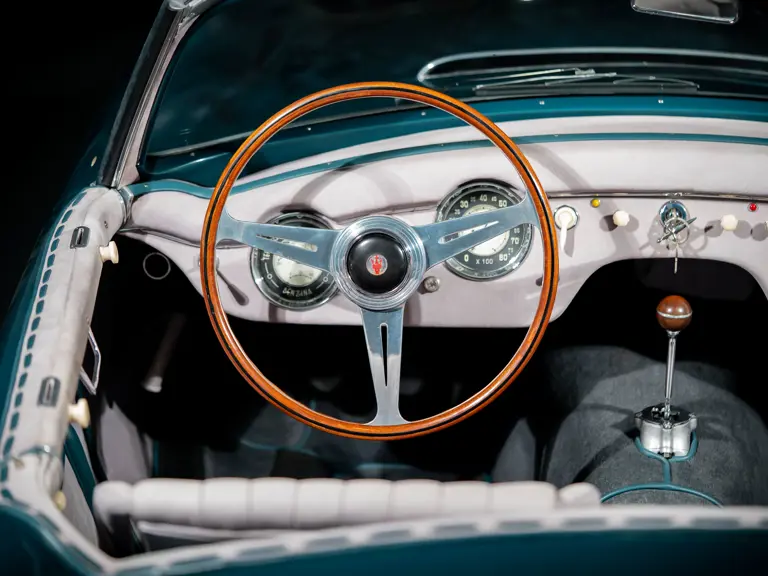
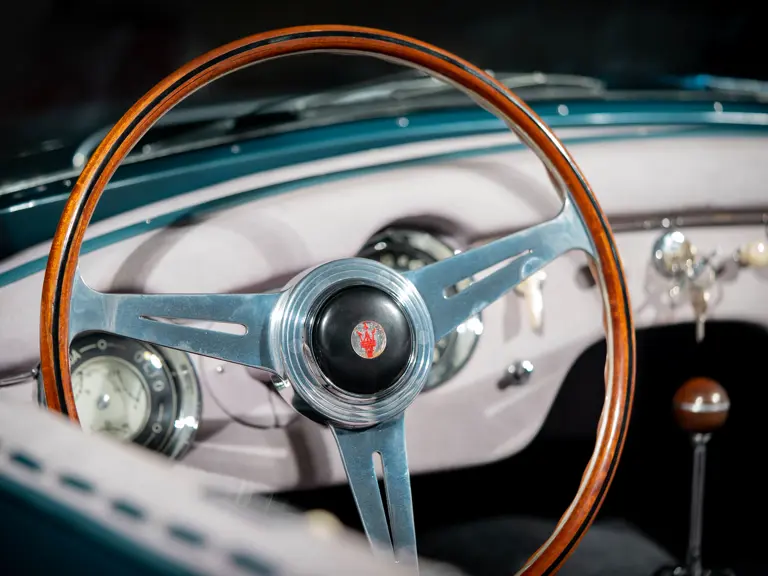
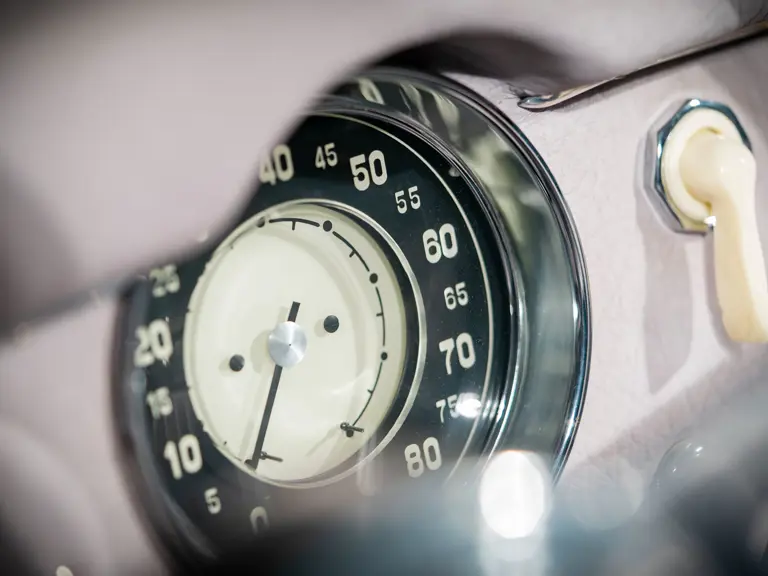
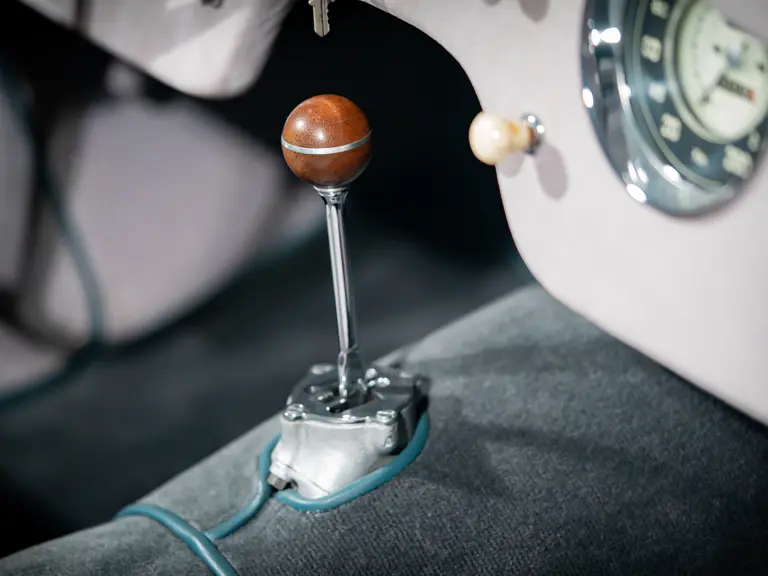
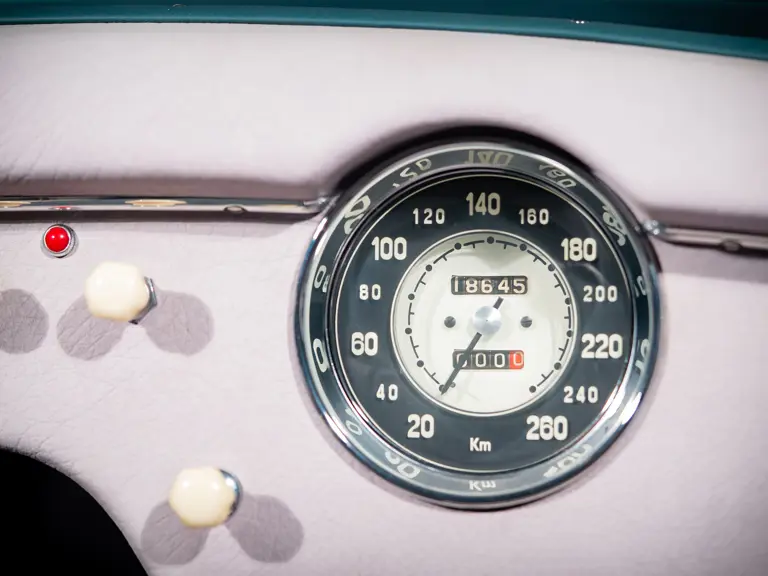
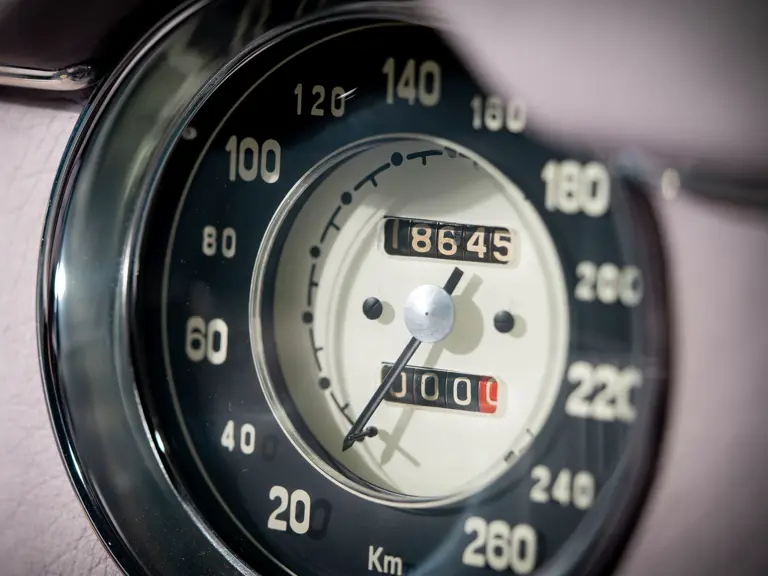
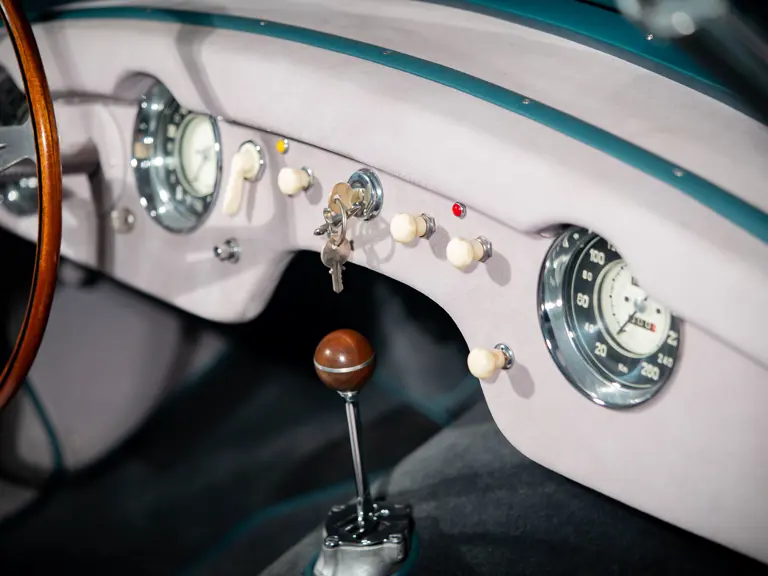
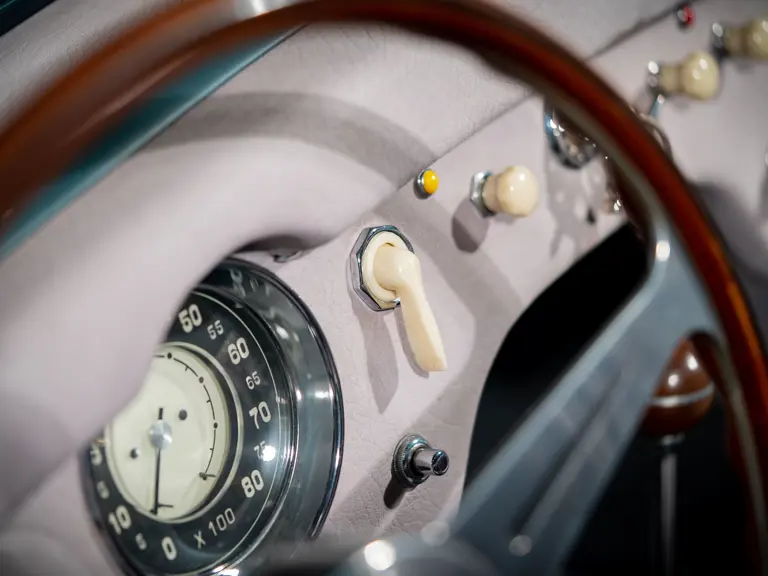
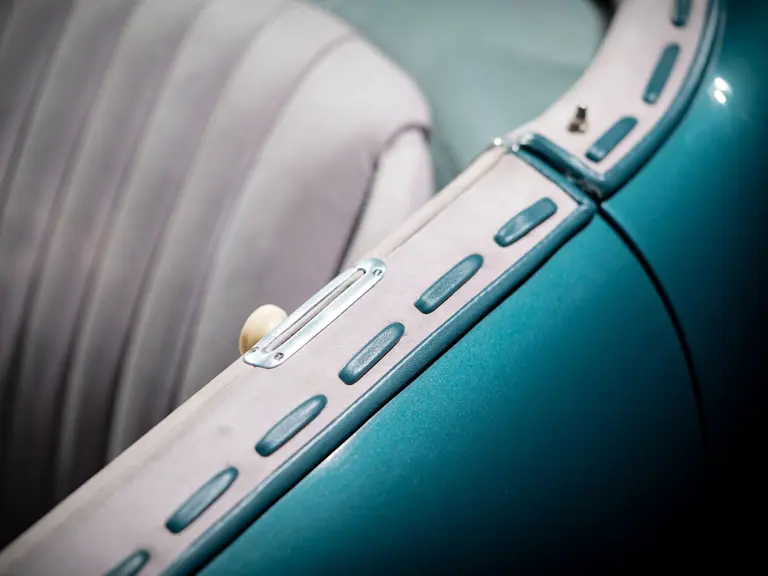
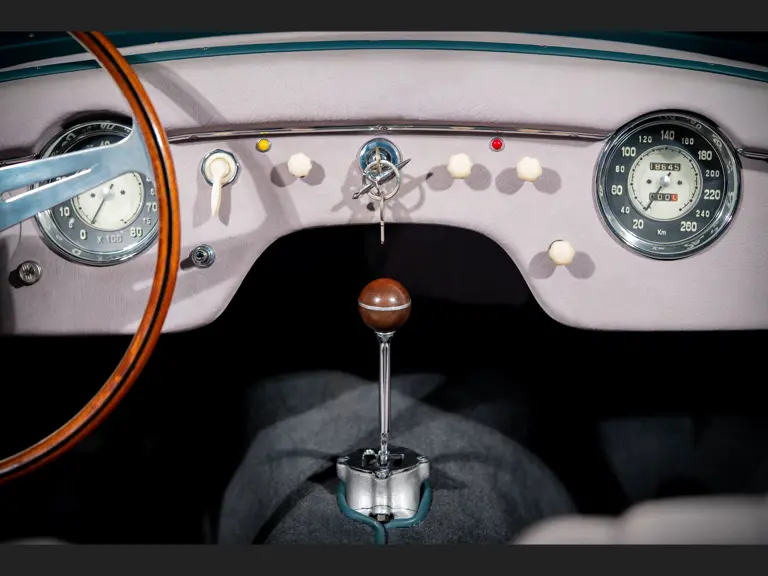
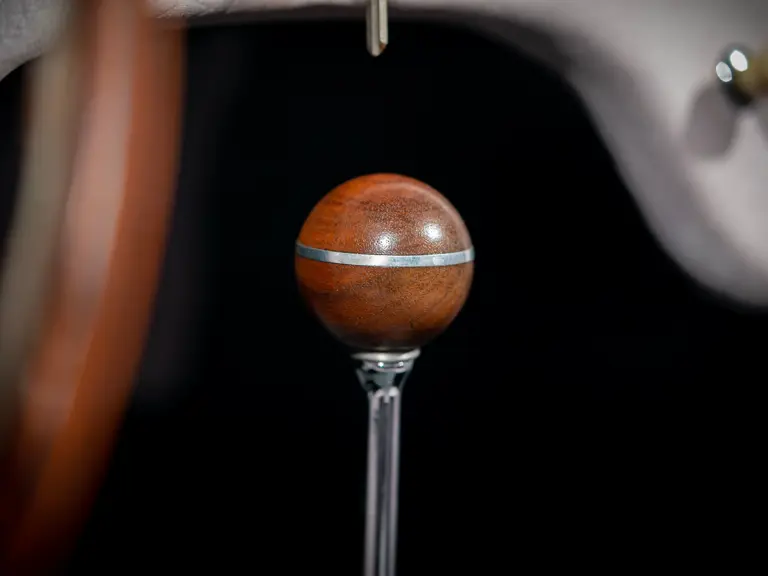
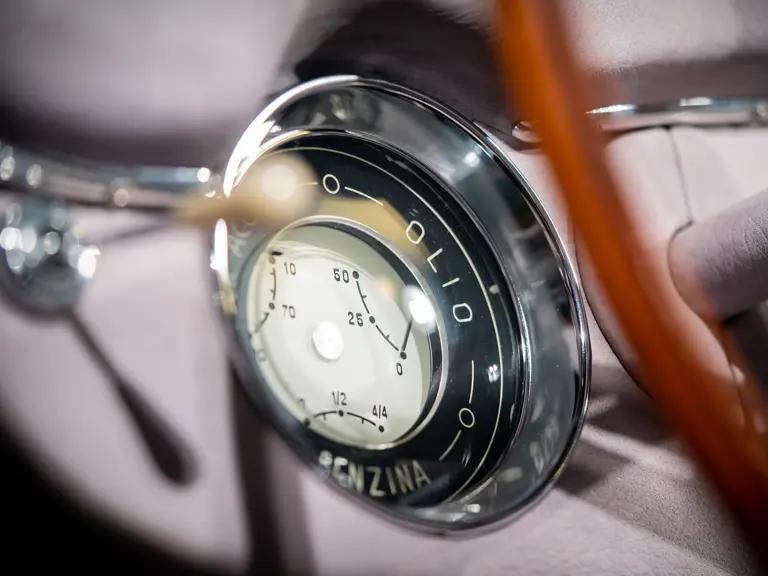
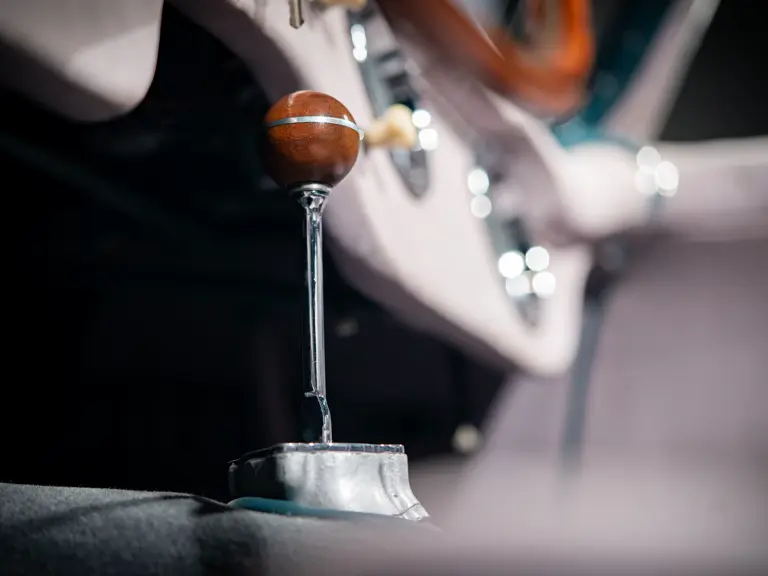
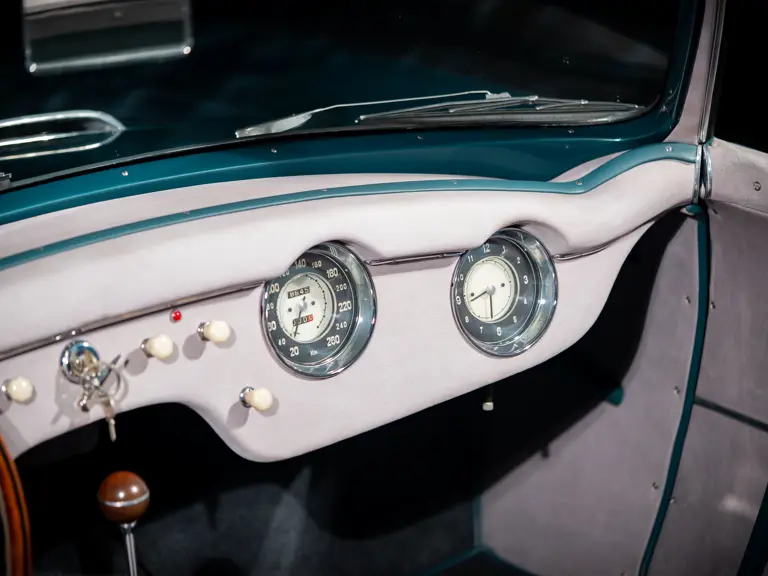
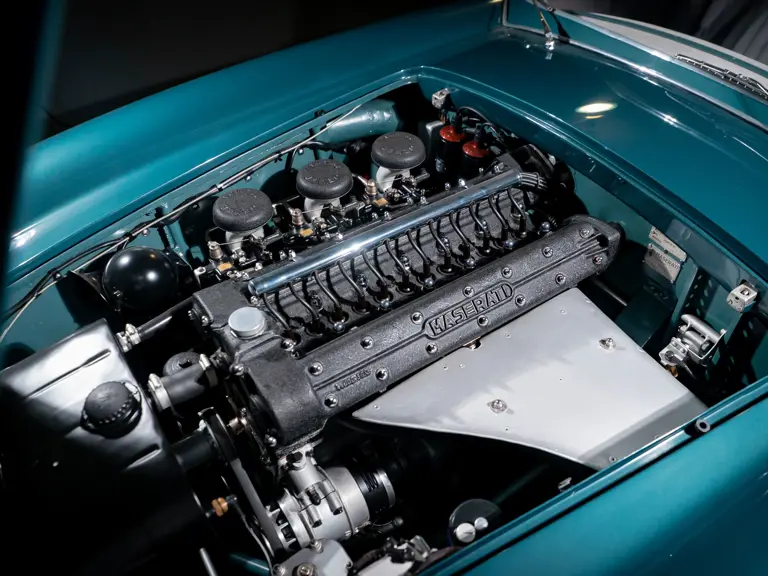
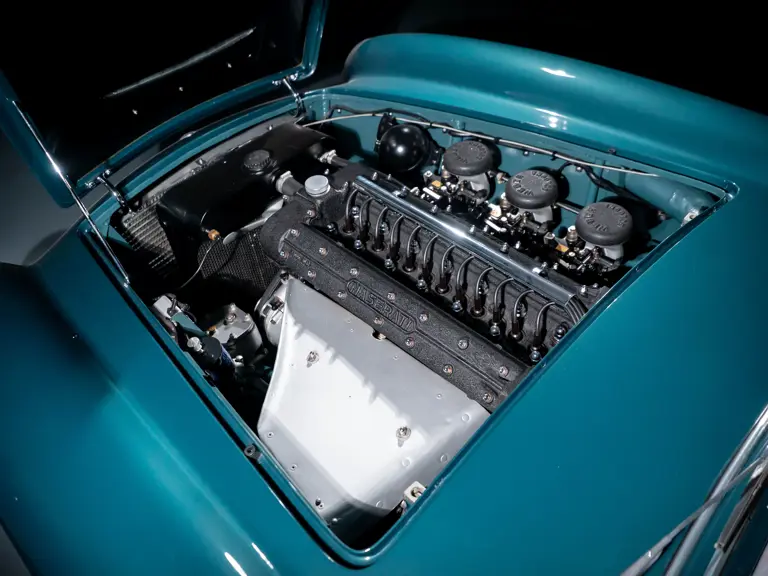
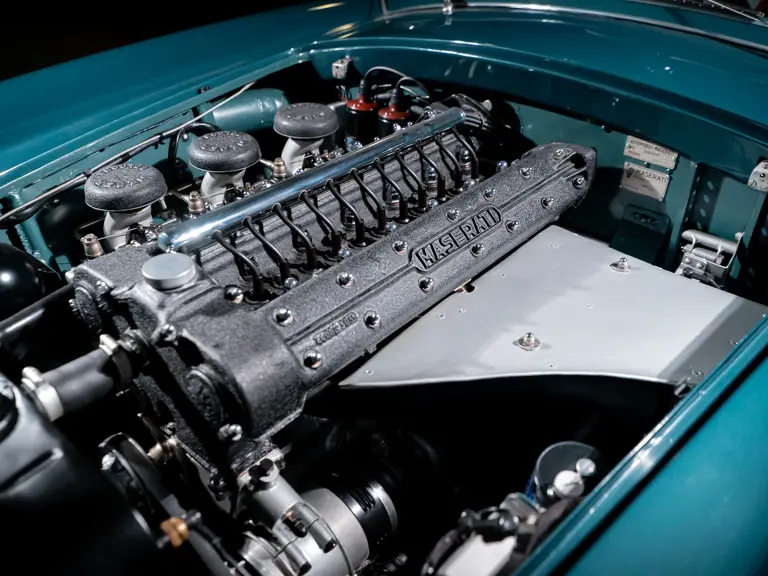
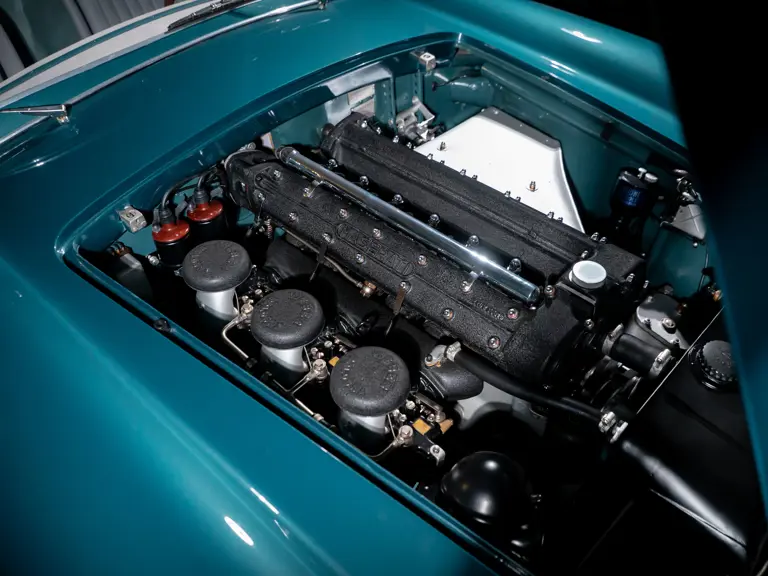
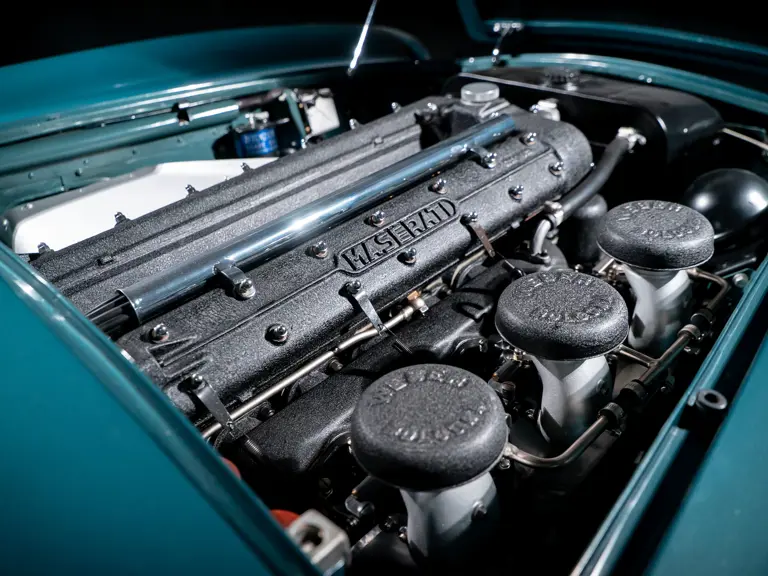
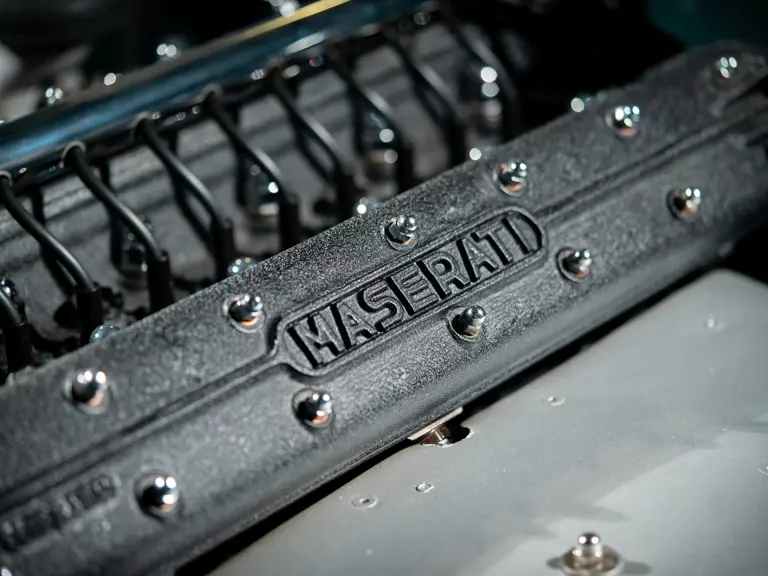
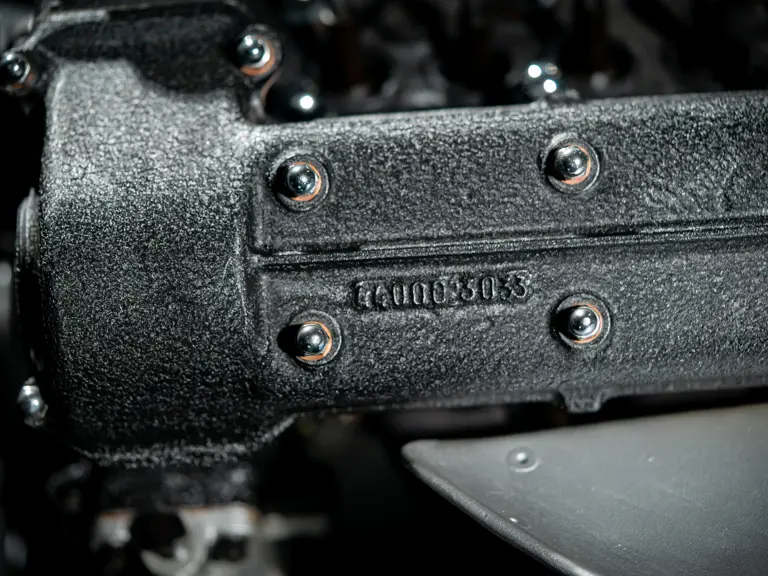
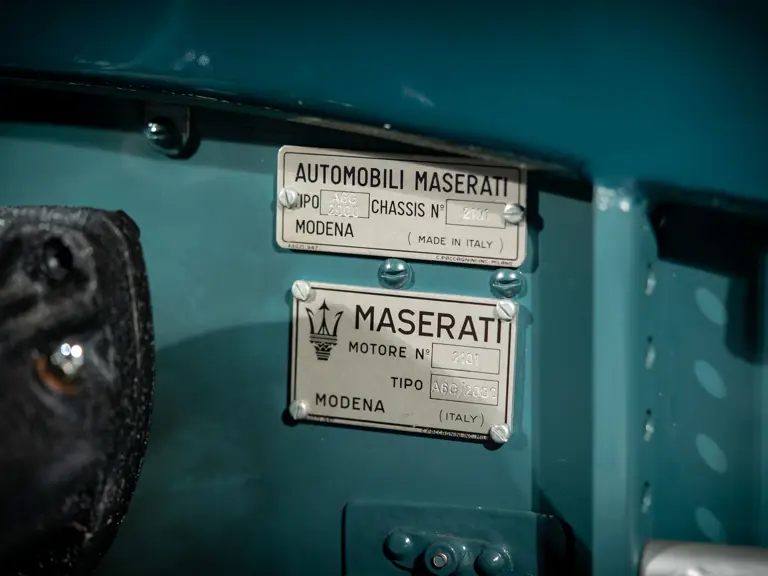
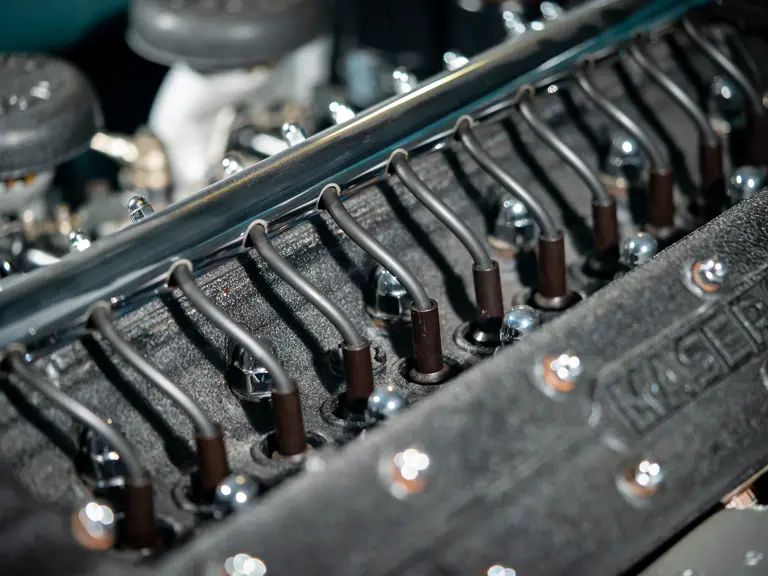
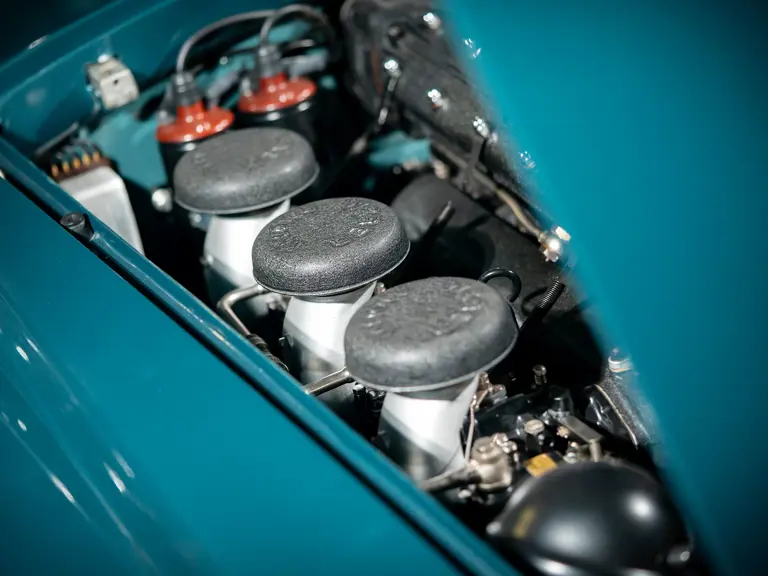
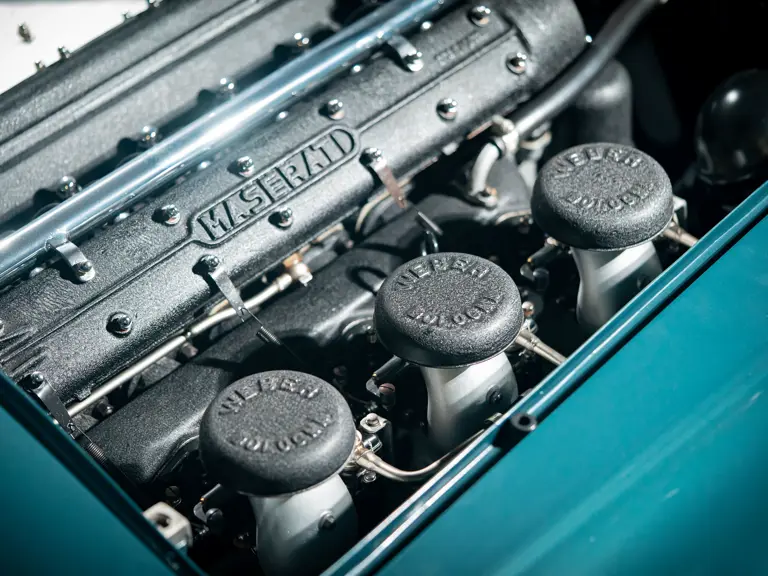
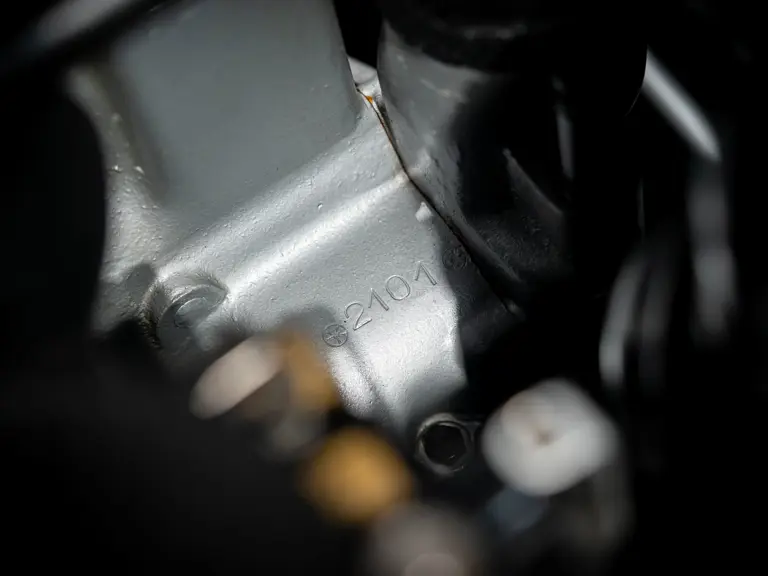
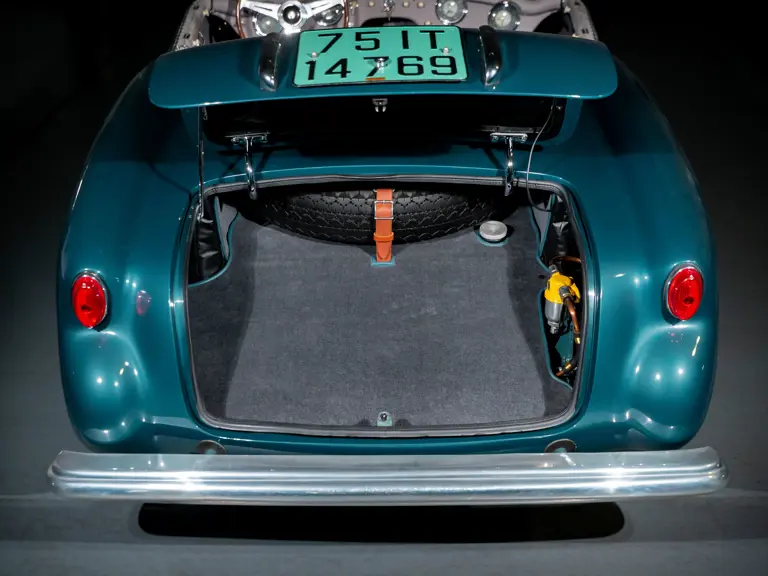
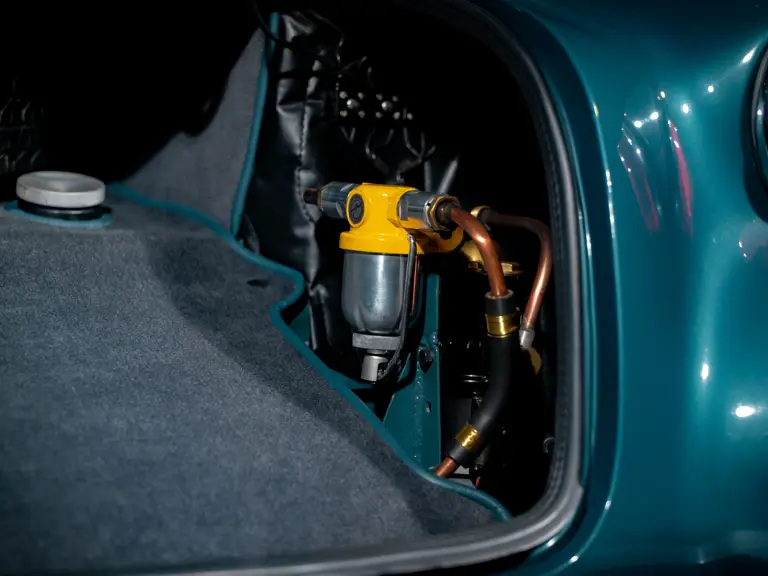
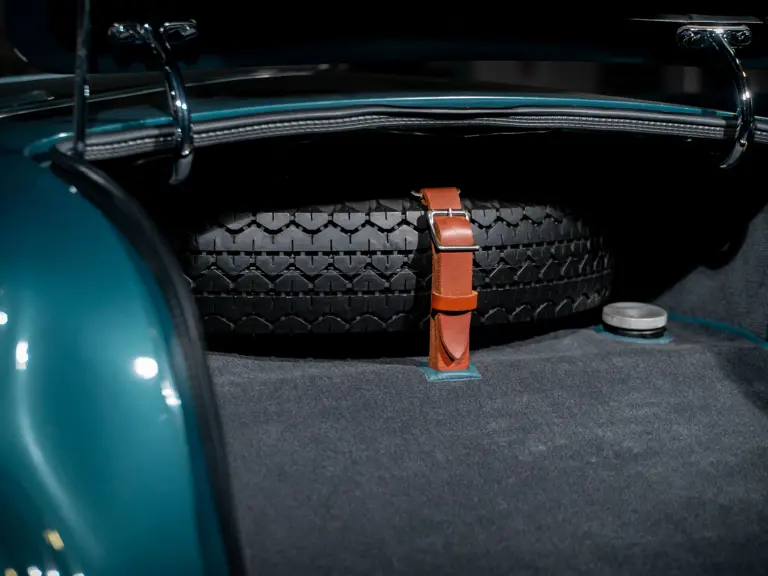
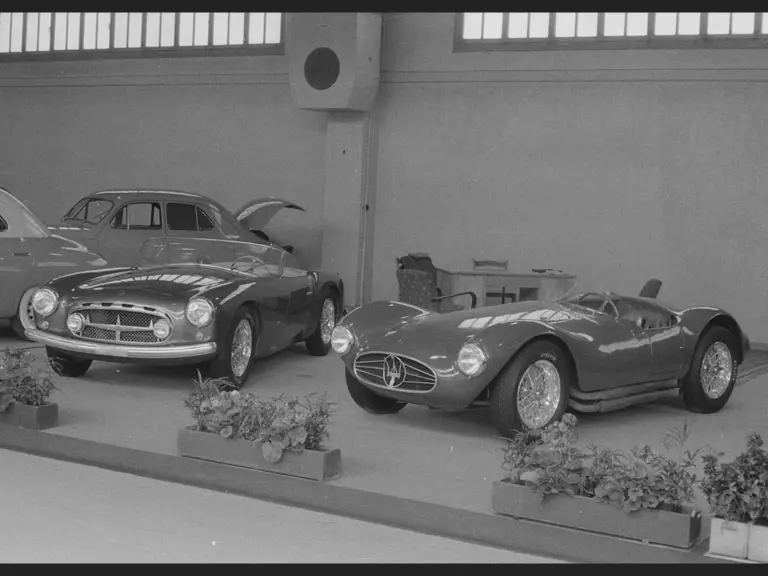
 | Monterey, California
| Monterey, California
